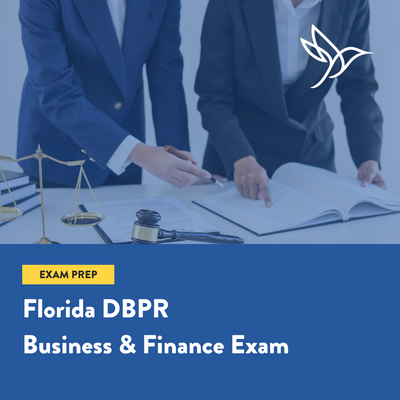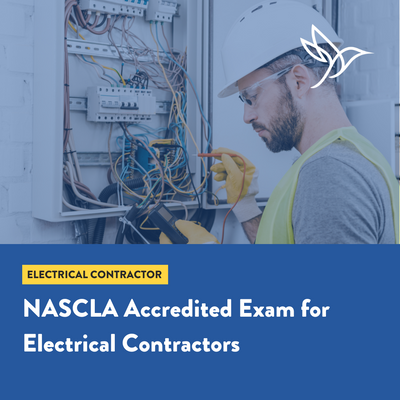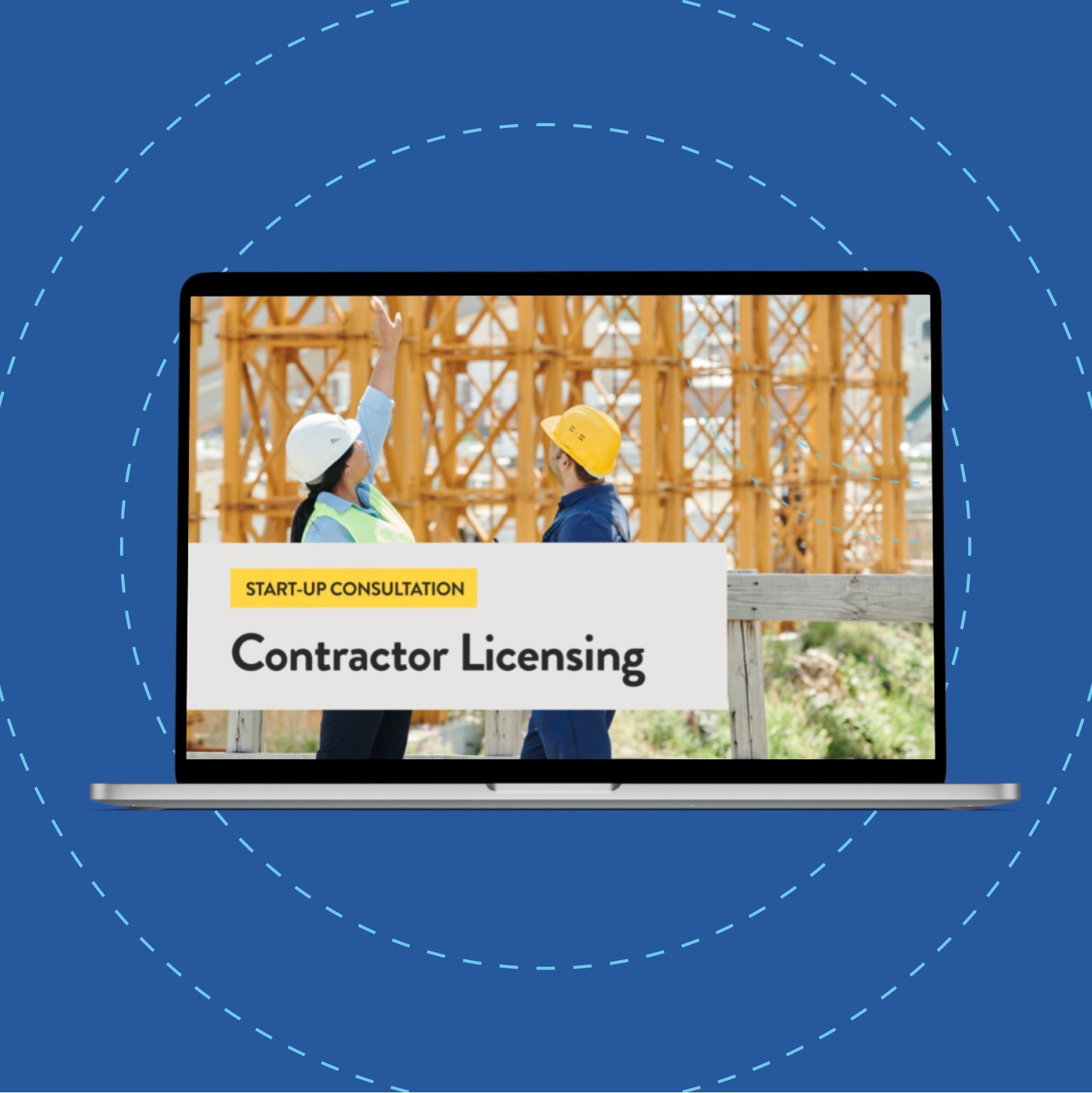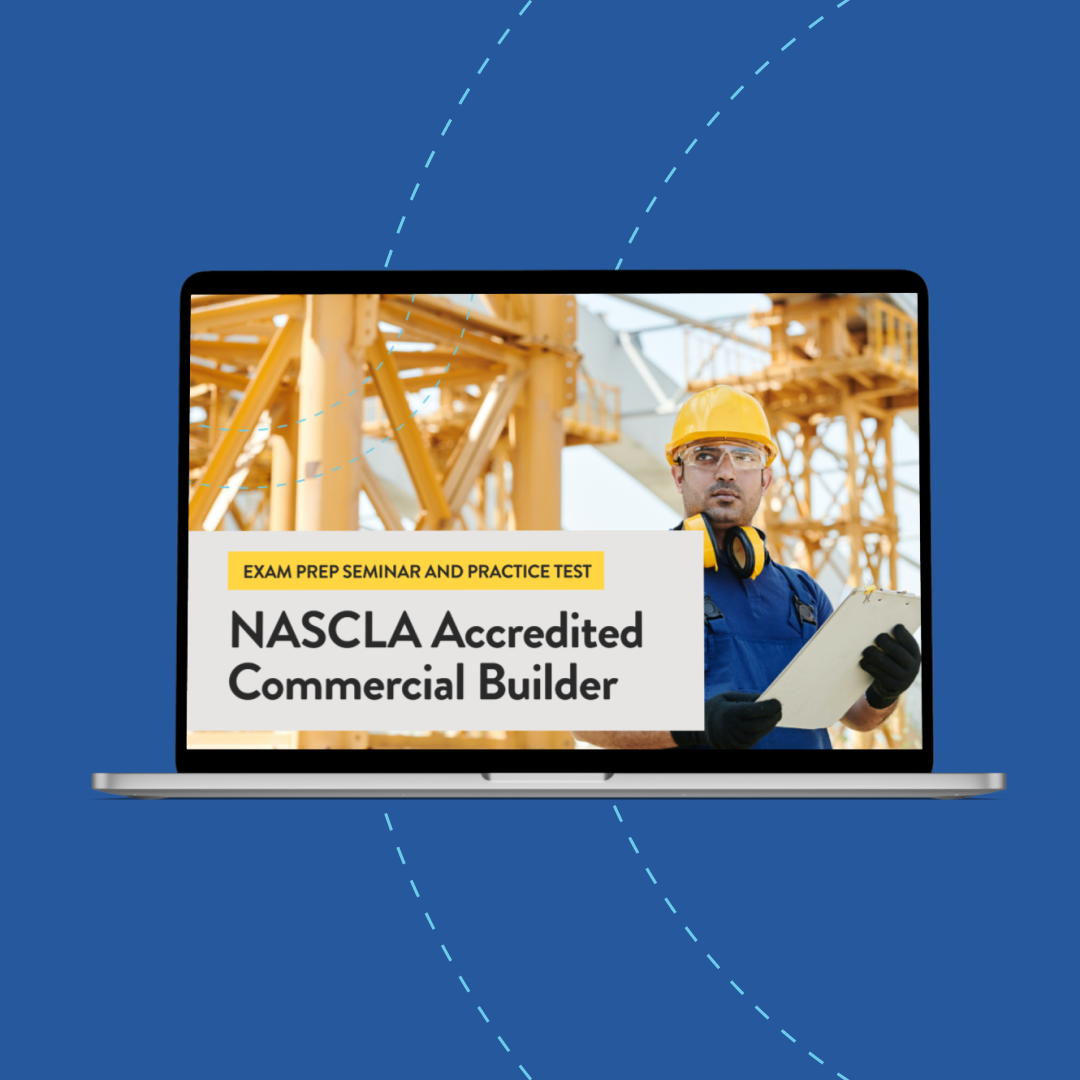<!-- 2025-08-12T09:54:34.6136604Z -->
<style>.shoplift-hide { opacity: 0 !important; }</style>
<style id="sl-preview-bar-hide">#preview-bar-iframe, #PBarNextFrameWrapper { display: none !important; }</style>
<script type="text/javascript">(function(rootPath, template, themeRole, themeId, isThemePreview){ /* Generated on 2025-12-25T14:45:04.1554746Z */var le=Object.defineProperty;var ce=(E,P,V)=>P in E?le(E,P,{enumerable:!0,configurable:!0,writable:!0,value:V}):E[P]=V;var m=(E,P,V)=>ce(E,typeof P!="symbol"?P+"":P,V);(function(){"use strict";var E=document.createElement("style");E.textContent=`#shoplift-preview-control{position:fixed;max-width:332px;height:56px;background-color:#141414;z-index:9999;bottom:20px;display:flex;border-radius:8px;box-shadow:13px 22px 7px #0000,9px 14px 7px #00000003,5px 8px 6px #0000000d,2px 4px 4px #00000017,1px 1px 2px #0000001a,0 0 #0000001a;align-items:center;margin:0 auto;left:16px;right:16px;opacity:0;transform:translateY(20px);visibility:hidden;transition:opacity .4s ease-in-out,transform .4s ease-in-out,visibility 0s .4s}#shoplift-preview-control.visible{opacity:1;transform:translateY(0);visibility:visible;transition:opacity .4s ease-in-out,transform .4s ease-in-out,visibility 0s 0s}#shoplift-preview-control *{font-family:Inter,sans-serif;color:#fff;box-sizing:border-box;font-size:16px}#shoplift-preview-variant-title{font-weight:400;line-height:140%;font-size:16px;text-align:start;letter-spacing:-.16px;flex-grow:1;text-wrap:nowrap;overflow:hidden;text-overflow:ellipsis}#shoplift-preview-variant-selector{position:relative;display:block;padding:6px 0;height:100%;min-width:0;flex:1 1 auto}#shoplift-preview-variant-menu-trigger{border:none;cursor:pointer;width:100%;background-color:transparent;padding:0 16px;border-left:1px solid #333;border-right:1px solid #333;height:100%;display:flex;align-items:center;justify-content:start;gap:8px}#shoplift-preview-variant-selector .menu-variant-label{width:24px;height:24px;border-radius:50%;padding:6px;display:flex;justify-content:center;align-items:center;font-size:12px;font-style:normal;font-weight:600;line-height:100%;letter-spacing:-.12px;flex-shrink:0}#shoplift-preview-variant-selector .preview-variant-menu{position:absolute;bottom:110%;transform:translate3d(0,20px,0);visibility:hidden;pointer-events:none;opacity:0;cursor:pointer;background-color:#141414;border:1px solid #141414;border-radius:6px;width:100%;max-height:156px;overflow-y:auto;box-shadow:0 8px 16px #0003;z-index:1;transition:opacity .3s ease-in-out,transform .3s ease-in-out,visibility 0s .3s}#shoplift-preview-variant-selector .preview-variant-menu.preview-variant-menu__visible{visibility:visible;pointer-events:auto;opacity:100;transform:translateZ(0);transition:opacity .3s ease-in-out,transform .3s ease-in-out,visibility 0s 0s}@media screen and (max-width: 400px){#shoplift-preview-variant-selector .preview-variant-menu{position:fixed;left:0;right:0;width:auto;bottom:110%}}#shoplift-preview-variant-selector .preview-variant-menu .preview-variant-menu--item{padding:12px 16px;display:flex;overflow:hidden}#shoplift-preview-variant-selector .preview-variant-menu .preview-variant-menu--item .menu-variant-label{margin-right:6px}#shoplift-preview-variant-selector .preview-variant-menu .preview-variant-menu--item span{overflow:hidden;text-overflow:ellipsis;text-wrap:nowrap;white-space:nowrap;color:#f6f6f6;font-size:14px;font-style:normal;font-weight:500}#shoplift-preview-variant-selector .preview-variant-menu .preview-variant-menu--item:hover{background-color:#545454}#shoplift-preview-variant-selector .preview-variant-menu .preview-variant-menu--item:last-of-type{border-bottom-left-radius:6px;border-bottom-right-radius:6px}#shoplift-preview-variant-selector .preview-variant-menu .preview-variant-menu--item:first-of-type{border-top-left-radius:6px;border-top-right-radius:6px}#shoplift-preview-control div:has(#shoplift-exit-preview-button){padding:0 16px}#shoplift-exit-preview-button{padding:6px 8px;font-weight:500;line-height:75%;border-radius:4px;background-color:transparent;border:none;text-decoration:none}#shoplift-exit-preview-button:hover{cursor:pointer;background-color:#333}`,document.head.appendChild(E);var P=" daum[ /]| deusu/| yadirectfetcher|(?:^|[^g])news(?!sapphire)|(?<! (?:channel/|google/))google(?!(app|/google| pixel))|(?<! cu)bots?(?:\\b|_)|(?<!(?: ya| yandex|^job|inapp;) ?)search|(?<!(?:lib))http|(?<![hg]m)score|@[a-z][\\w-]+\\.|\\(\\)|\\.com|\\b\\d{13}\\b|^<|^[\\w \\.\\-\\(?:\\):]+(?:/v?\\d+(?:\\.\\d+)?(?:\\.\\d{1,10})*?)?(?:,|$)|^[^ ]{50,}$|^\\d+\\b|^\\w+/[\\w\\(\\)]*$|^active|^ad muncher|^amaya|^avsdevicesdk/|^biglotron|^bot|^bw/|^clamav[ /]|^client/|^cobweb/|^custom|^ddg[_-]android|^discourse|^dispatch/\\d|^downcast/|^duckduckgo|^facebook|^getright/|^gozilla/|^hobbit|^hotzonu|^hwcdn/|^jeode/|^jetty/|^jigsaw|^microsoft bits|^movabletype|^mozilla/\\d\\.\\d \\(compatible;?\\)$|^mozilla/\\d\\.\\d \\w*$|^navermailapp|^netsurf|^offline|^owler|^postman|^python|^rank|^read|^reed|^rest|^rss|^snapchat|^space bison|^svn|^swcd |^taringa|^thumbor/|^track|^valid|^w3c|^webbandit/|^webcopier|^wget|^whatsapp|^wordpress|^xenu link sleuth|^yahoo|^yandex|^zdm/\\d|^zoom marketplace/|^{{.*}}$|admin|analyzer|archive|ask jeeves/teoma|bit\\.ly/|bluecoat drtr|browsex|burpcollaborator|capture|catch|check|chrome-lighthouse|chromeframe|classifier|clean|cloud|crawl|cypress/|dareboost|datanyze|dejaclick|detect|dmbrowser|download|evc-batch/|feed|firephp|gomezagent|headless|httrack|hubspot marketing grader|hydra|ibisbrowser|images|insight|inspect|iplabel|ips-agent|java(?!;)|library|mail\\.ru/|manager|measure|neustar wpm|node|nutch|offbyone|optimize|pageburst|pagespeed|parser|perl|phantomjs|pingdom|powermarks|preview|proxy|ptst[ /]\\d|reputation|resolver|retriever|rexx;|rigor|rss\\b|scan|scrape|server|sogou|sparkler/|speedcurve|spider|splash|statuscake|synapse|synthetic|tools|torrent|trace|transcoder|url|virtuoso|wappalyzer|watch|webglance|webkit2png|whatcms/|zgrab",V=/bot|spider|crawl|http|lighthouse/i,L;function z(){if(L instanceof RegExp)return L;try{L=new RegExp(P,"i")}catch{L=V}return L}function B(c){return!!c&&z().test(c)}class R{constructor(){m(this,"timestamp");this.timestamp=new Date}}class j extends R{constructor(t,i,s){super();m(this,"type");m(this,"testId");m(this,"hypothesisId");this.type=3,this.testId=t,this.hypothesisId=i,this.timestamp=s}}class G extends R{constructor(t){super();m(this,"type");m(this,"path");this.type=4,this.path=t}}class K extends R{constructor(t){super();m(this,"type");m(this,"cart");this.type=5,this.cart=t}}class D extends Error{constructor(){super();m(this,"isBot");this.isBot=!0}}function J(c,e,t){for(const i of e.selectors){const s=c.querySelectorAll(i.cssSelector);for(let r=0;r<s.length;r++)t(e.testId,e.hypothesisId)}q(c,e,(i,s,r,n,o)=>o(s,r),t)}function O(c,e,t){for(const i of e.selectors)M(c,e.testId,e.hypothesisId,i,t??(()=>{}));q(c,e,M,t??(()=>{}))}function W(c){return c.urlPatterns.reduce((e,t)=>{switch(t.operator){case"contains":return e+`.*${t}.*`;case"endsWith":return e+`.*${t}`;case"startsWith":return e+`${t}.*`}},"")}function q(c,e,t,i){new MutationObserver(()=>{for(const r of e.selectors)t(c,e.testId,e.hypothesisId,r,i)}).observe(c.documentElement,{childList:!0,subtree:!0})}function M(c,e,t,i,s){const r=c.querySelectorAll(i.cssSelector);for(let n=0;n<r.length;n++){let o=r.item(n);if(o instanceof HTMLElement&&o.dataset.shoplift!==""){o.dataset.shoplift="";for(const l of i.actions.sort(se))o=Y(c,i.cssSelector,o,l)}}return r.length>0&&s?(s(e,t),!0):!1}function Y(c,e,t,i){switch(i.type){case"innerHtml":t.innerHTML=i.value;break;case"attribute":Z(t,i.scope,i.value);break;case"css":Q(c,e,i.value);break;case"js":X(c,t,i);break;case"copy":return ee(t);case"remove":te(t);break;case"move":ie(t,parseInt(i.value));break}return t}function Z(c,e,t){c.setAttribute(e,t)}function Q(c,e,t){var s;const i=c.createElement("style");i.innerHTML=`${e} { ${t} }`,(s=c.getElementsByTagName("head")[0])==null||s.appendChild(i)}function X(c,e,t){Function("document","element",`"use strict"; ${t.value}`)(c,e)}function ee(c){const e=c.cloneNode(!0);if(!c.parentNode)throw"Can't copy node outside of DOM";return c.parentNode.insertBefore(e,c.nextSibling),e}function te(c){c.remove()}function ie(c,e){if(e===0)return;const t=Array.prototype.slice.call(c.parentElement.children).indexOf(c),i=Math.min(Math.max(t+e,0),c.parentElement.children.length-1);c.parentElement.children.item(i).insertAdjacentElement(e>0?"afterend":"beforebegin",c)}function se(c,e){return H(c)-H(e)}function H(c){return c.type==="copy"||c.type==="remove"?0:1}var x=(c=>(c[c.Template=0]="Template",c[c.Theme=1]="Theme",c[c.UrlRedirect=2]="UrlRedirect",c[c.Script=3]="Script",c[c.Dom=4]="Dom",c[c.Price=5]="Price",c))(x||{});const re="data:image/svg+xml,%3csvg%20width='12'%20height='12'%20viewBox='0%200%2012%2012'%20fill='none'%20xmlns='http://www.w3.org/2000/svg'%3e%3cpath%20d='M9.96001%207.90004C9.86501%207.90004%209.77001%207.86504%209.69501%207.79004L6.43501%204.53004C6.19501%204.29004%205.80501%204.29004%205.56501%204.53004L2.30501%207.79004C2.16001%207.93504%201.92001%207.93504%201.77501%207.79004C1.63001%207.64504%201.63001%207.40504%201.77501%207.26004L5.03501%204.00004C5.56501%203.47004%206.43001%203.47004%206.96501%204.00004L10.225%207.26004C10.37%207.40504%2010.37%207.64504%2010.225%207.79004C10.15%207.86004%2010.055%207.90004%209.96001%207.90004Z'%20fill='white'/%3e%3c/svg%3e",ne="data:image/svg+xml,%3csvg%20width='14'%20height='24'%20viewBox='0%200%2014%2024'%20fill='none'%20xmlns='http://www.w3.org/2000/svg'%3e%3cpath%20d='M12.3976%2014.5255C12.2833%2013.8788%2012.0498%2013.3024%2011.6952%2012.7961C11.3416%2012.2898%2010.9209%2011.8353%2010.4353%2011.4317C9.94868%2011.0291%209.43546%2010.6488%208.89565%2010.292C8.48487%2010.049%208.09577%209.78565%207.72637%209.50402C7.35697%209.2224%207.08016%208.89503%206.89694%208.51987C6.71273%208.14471%206.67826%207.69533%206.79055%207.1697C6.86345%206.83216%206.97476%206.54647%207.12351%206.31162C7.27324%206.07778%207.47124%205.89986%207.7175%205.77684C7.96377%205.65483%208.21989%205.59383%208.48389%205.59383C8.88087%205.59383%209.17639%205.7016%209.3734%205.91714C9.56943%206.13268%209.68271%206.42345%209.71424%206.78946C9.74576%207.15547%209.72015%207.55401%209.63839%207.98509C9.55663%208.41617%209.43645%208.84724%209.27687%209.27934L13.5127%208.80149C13.9638%207.52656%2014.1017%206.42447%2013.9264%205.49725C13.751%204.56901%2013.2664%203.85122%2012.4724%203.34491C12.239%203.19648%2011.9779%203.07041%2011.6893%202.96569L12.0026%201.50979L9.86397%200L7.3875%201.50979L7.11169%202.78878C6.65166%202.8874%206.21724%203.01957%205.8114%203.19038C4.85292%203.594%204.06684%204.15115%203.45117%204.86385C2.83452%205.57655%202.42571%206.40108%202.22378%207.33847C2.06616%208.06947%202.04942%208.70796%202.17551%209.25087C2.30061%209.7948%202.52028%2010.2828%202.8355%2010.7139C3.14974%2011.145%203.51816%2011.5344%203.93977%2011.881C4.36039%2012.2288%204.782%2012.5521%205.20164%2012.851C5.68334%2013.1702%206.13844%2013.5169%206.56497%2013.8921C6.99052%2014.2672%207.31954%2014.7125%207.55004%2015.228C7.78055%2015.7445%207.81502%2016.3769%207.65347%2017.1262C7.56482%2017.5389%207.43676%2017.8765%207.27028%2018.1388C7.10381%2018.4011%206.89596%2018.5983%206.64772%2018.7295C6.3985%2018.8606%206.12071%2018.9267%205.8114%2018.9267C5.21641%2018.9267%204.79776%2018.6034%204.62833%2018.1632C4.4589%2017.7229%204.47367%2017.2583%204.60075%2016.5639C4.72782%2015.8705%205.05092%2015.1395%205.37107%2014.3699H1.17665C1.17665%2014.3699%200.207341%2016.1115%200.0310135%2017.6762C-0.0655232%2018.5302%200.0635208%2019.2653%200.41519%2019.8844C0.76686%2020.5036%201.33032%2020.9814%202.10655%2021.319C2.39222%2021.443%202.7104%2021.5447%203.05813%2021.623L2.54589%2024H7.17473L7.7047%2021.5386C8.08493%2021.442%208.43857%2021.3231%208.76562%2021.1787C9.73985%2020.7476%2010.52%2020.1427%2011.1071%2019.3649C11.6932%2018.5871%2012.0873%2017.7291%2012.2892%2016.7917C12.4744%2015.9295%2012.5099%2015.1741%2012.3966%2014.5275L12.3976%2014.5255Z'%20fill='white'/%3e%3c/svg%3e";async function oe(c){let e=c.replace(/-/g,"+").replace(/_/g,"/");for(;e.length%4;)e+="=";const t=atob(e),i=Uint8Array.from(t,n=>n.charCodeAt(0)),s=new Blob([i]).stream().pipeThrough(new DecompressionStream("gzip")),r=await new Response(s).text();return JSON.parse(r)}function _(c,e){return typeof e=="string"&&/\d{4}-\d{2}-\d{2}T\d{2}:\d{2}:\d{2}.\d+(?:Z|[+-]\d+)/.test(e)?new Date(e):e}function $(c,e){return e}let N=!1;class ae{constructor(e,t,i,s,r,n,o,l,a,h,g){m(this,"DATA_SL_ATTRIBUTE_P","data-sl-attribute-p");m(this,"DATA_SL_TEST_ID","data-sl-test-id");m(this,"VIEWPORT_TRACK_THRESHOLD",.5);m(this,"temporarySessionKey","Shoplift_Session");m(this,"essentialSessionKey","Shoplift_Essential");m(this,"analyticsSessionKey","Shoplift_Analytics");m(this,"legacySessionKey");m(this,"cssHideClass");m(this,"testConfigs");m(this,"inactiveTestConfigs");m(this,"testsFilteredByAudience");m(this,"sendPageView");m(this,"shopliftDebug");m(this,"gaConfig");m(this,"getCountryTimeout");m(this,"state");m(this,"shopifyAnalyticsId");m(this,"cookie",document.cookie);m(this,"isSyncing",!1);m(this,"isSyncingGA",!1);m(this,"fetch");m(this,"localStorageSet");m(this,"localStorageGet");m(this,"sessionStorageSet",window.sessionStorage.setItem.bind(window.sessionStorage));m(this,"sessionStorageGet",window.sessionStorage.getItem.bind(window.sessionStorage));m(this,"urlParams",new URLSearchParams(window.location.search));m(this,"device");m(this,"logHistory");m(this,"activeViewportObservers",new Map);this.shop=e,this.host=t,this.eventHost=i,this.disableReferrerOverride=l,this.logHistory=[],this.legacySessionKey=`SHOPLIFT_SESSION_${this.shop}`,this.cssHideClass=s?"shoplift-hide":"",this.testConfigs=h.map(u=>({...u,startAt:new Date(u.startAt),statusHistory:u.statusHistory.map(w=>({...w,createdAt:new Date(w.createdAt)}))})),this.inactiveTestConfigs=g,this.sendPageView=!!r,this.shopliftDebug=n===!0,this.gaConfig=o!=={"sendEvents":false,"mode":"gtag"}?o:{sendEvents:!1},this.fetch=window.fetch.bind(window),this.localStorageSet=window.localStorage.setItem.bind(window.localStorage),this.localStorageGet=window.localStorage.getItem.bind(window.localStorage);const v=this.getDeviceType();this.device=v!=="tablet"?v:"mobile",this.state=this.loadState(),this.shopifyAnalyticsId=this.getShopifyAnalyticsId(),this.testsFilteredByAudience=h.filter(u=>u.status=="active"),this.getCountryTimeout=a===1000?1e3:a,this.log("State Loaded",JSON.stringify(this.state))}async init(){var e;try{if(this.log("Shoplift script initializing"),window.Shopify&&window.Shopify.designMode){this.log("Skipping script for design mode");return}if(window.location.href.includes("slScreenshot=true")){this.log("Skipping script for screenshot");return}if(window.location.hostname.endsWith(".edgemesh.com")){this.log("Skipping script for preview");return}if(window.location.href.includes("isShopliftMerchant")){const i=this.urlParams.get("isShopliftMerchant")==="true";this.log("Setting merchant session to %s",i),this.state.temporary.isMerchant=i,this.persistTemporaryState()}if(this.state.temporary.isMerchant){this.log("Setting up preview for merchant"),typeof window.shoplift!="object"&&this.setShopliftStub(),this.state.temporary.previewConfig||this.hidePage(),await this.initPreview(),(e=document.querySelector("#sl-preview-bar-hide"))==null||e.remove();return}if(this.state.temporary.previewConfig=void 0,B(navigator.userAgent))return;if(navigator.userAgent.includes("Chrome/118")){this.log("Random: %o",[Math.random(),Math.random(),Math.random()]);const i=await this.makeRequest({url:`${this.eventHost}/api/v0/events/ip`,method:"get"}).then(s=>s==null?void 0:s.json());this.log(`IP: ${i}`),this.makeRequest({url:`${this.eventHost}/api/v0/logs`,method:"post",data:JSON.stringify(this.debugState(),$)}).catch()}if(this.shopifyAnalyticsId=this.getShopifyAnalyticsId(),this.monitorConsentChange(),this.checkForThemePreview())return;if(!this.disableReferrerOverride&&this.state.temporary.originalReferrer!=null){this.log(`Overriding referrer from '${document.referrer}' to '${this.state.temporary.originalReferrer}'`);const i=this.state.temporary.originalReferrer;delete this.state.temporary.originalReferrer,this.persistTemporaryState(),Object.defineProperty(document,"referrer",{get:()=>i,enumerable:!0,configurable:!0})}if(await this.refreshVisitor(this.shopifyAnalyticsId),await this.handleVisitorTest()){this.log("Redirecting for visitor test");return}this.setShoplift(),this.showPage(),await this.ensureCartAttributesForExistingPriceTests(!1),await this.finalize(),console.log("SHOPLIFT SCRIPT INITIALIZED!")}catch(t){if(t instanceof D)return;throw t}finally{typeof window.shoplift!="object"&&this.setShopliftStub()}}getVariantColor(e){switch(e){case"a":return{text:"#141414",bg:"#E2E2E2"};case"b":return{text:"rgba(255, 255, 255, 1)",bg:"rgba(37, 99, 235, 1)"}}}getDefaultVariantTitle(e){return e.title?e.title:e.type==="price"?e.isControl?"Original prices":"Variant prices":e.isControl?"Original":"Untitled variant "+e.label.toUpperCase()}async initPreview(){const e=this.urlParams.get("previewConfig");if(e){this.state.temporary.previewConfig=void 0,this.log("Setting up the preview"),this.log("Found preview config, writing to temporary state");const t=await oe(e);if(this.state.temporary.previewConfig=t,this.state.temporary.previewConfig.testTypeCategory===x.Price){this.hidePage(!0);const s=this.state.temporary.previewConfig;let r=`${this.host}/api/dom-selectors/${s.storeId}/${s.testId}/${s.isDraft||!1}`;s.shopifyProductId&&(r+=`?productId=${s.shopifyProductId}`);const n=await this.makeJsonRequest({method:"get",url:r}).catch(o=>(this.log("Error getting domSelectors",o),null));s.variants.forEach(o=>{var l;return o.domSelectors=(l=n[o.id])==null?void 0:l.domSelectors})}this.persistTemporaryState();const i=new URL(window.location.toString());i.searchParams.delete("previewConfig"),this.queueRedirect(i)}else if(this.state.temporary.previewConfig){this.showPage();const t=this.state.temporary.previewConfig;t.testTypeCategory===x.Template&&this.handleTemplatePreview(t)&&this.initPreviewControls(t),t.testTypeCategory===x.UrlRedirect&&this.handleUrlPreview(t)&&this.initPreviewControls(t),t.testTypeCategory===x.Script&&this.handleScriptPreview(t)&&this.initPreviewControls(t),t.testTypeCategory===x.Price&&await this.handlePricePreview(t)&&this.initPreviewControls(t)}}initPreviewControls(e){document.addEventListener("DOMContentLoaded",()=>{const t=e.variants.find(w=>w.id===e.currentVariant),i=(t==null?void 0:t.label)||"a",s=e.variants,r=document.createElement("div");r.id="shoplift-preview-control";const n=document.createElement("div"),o=document.createElement("img");o.src=ne,o.height=24,o.width=14,n.style.padding="0 16px",n.style.lineHeight="100%",n.appendChild(o),r.appendChild(n);const l=document.createElement("div");l.id="shoplift-preview-variant-selector";const a=document.createElement("button");a.id="shoplift-preview-variant-menu-trigger";const h=document.createElement("div");h.className="menu-variant-label",h.style.backgroundColor=this.getVariantColor(i).bg,h.style.color=this.getVariantColor(i).text,h.innerText=i.toUpperCase(),a.appendChild(h);const g=document.createElement("span");if(g.id="shoplift-preview-variant-title",g.innerText=t?this.getDefaultVariantTitle(t):"Untitled variant "+i.toUpperCase(),a.appendChild(g),s.length>1){const w=document.createElement("img");w.src=re,w.width=12,w.height=12,w.style.height="12px",w.style.width="12px",a.appendChild(w);const C=document.createElement("div");C.className="preview-variant-menu";for(const T of e.variants.filter(k=>k.id!==e.currentVariant)){const k=document.createElement("div");k.className="preview-variant-menu--item";const I=document.createElement("div");I.className="menu-variant-label",I.style.backgroundColor=this.getVariantColor(T.label).bg,I.style.color=this.getVariantColor(T.label).text,I.style.flexShrink="0",I.innerText=T.label.toUpperCase(),k.appendChild(I);const f=document.createElement("span");f.innerText=this.getDefaultVariantTitle(T),k.appendChild(f),k.addEventListener("click",()=>{this.pickVariant(T.id)}),C.appendChild(k)}l.appendChild(C),a.addEventListener("click",()=>{C.className!=="preview-variant-menu preview-variant-menu__visible"?C.classList.add("preview-variant-menu__visible"):C.classList.remove("preview-variant-menu__visible")}),document.addEventListener("click",T=>{T.target instanceof Element&&!a.contains(T.target)&&C.className==="preview-variant-menu preview-variant-menu__visible"&&C.classList.remove("preview-variant-menu__visible")})}else a.style.pointerEvents="none",h.style.margin="0";l.appendChild(a),r.appendChild(l);const v=document.createElement("div"),u=document.createElement("button");u.id="shoplift-exit-preview-button",u.innerText="Exit",v.appendChild(u),u.addEventListener("click",()=>{this.exitPreview()}),r.appendChild(v),document.body.appendChild(r),requestAnimationFrame(()=>{r.classList.add("visible")})}),this.ensureCartAttributesForExistingPriceTests(!0).catch(t=>{this.log("Error ensuring cart attributes for price test",t)})}pickVariant(e){var t,i,s,r;if(this.state.temporary.previewConfig){const n=this.state.temporary.previewConfig,o=new URL(window.location.toString());if(n.testTypeCategory===x.UrlRedirect){const l=(t=n.variants.find(a=>a.id===n.currentVariant))==null?void 0:t.redirectUrl;if(o.pathname===l){const a=(i=n.variants.find(h=>h.id===e))==null?void 0:i.redirectUrl;a&&(o.pathname=a)}}if(n.testTypeCategory===x.Template){const l=(s=n.variants.find(a=>a.id===n.currentVariant))==null?void 0:s.pathName;if(l&&o.pathname===l){const a=(r=n.variants.find(h=>h.id===e))==null?void 0:r.pathName;a&&a!==l&&(o.pathname=a)}}n.currentVariant=e,this.persistTemporaryState(),this.queueRedirect(o)}}exitPreview(){var t,i,s,r;const e=new URL(window.location.toString());if(((t=this.state.temporary.previewConfig)==null?void 0:t.testTypeCategory)===x.Template&&e.searchParams.delete("view"),((i=this.state.temporary.previewConfig)==null?void 0:i.testTypeCategory)===x.Script&&e.searchParams.delete("slVariant"),((s=this.state.temporary.previewConfig)==null?void 0:s.testTypeCategory)===x.UrlRedirect){const o=this.state.temporary.previewConfig.variants.filter(a=>a.label!=="a"&&a.redirectUrl!==null).map(a=>a.redirectUrl),l=(r=this.state.temporary.previewConfig.variants.find(a=>a.label==="a"))==null?void 0:r.redirectUrl;o.includes(e.pathname)&&l&&(e.pathname=l)}this.state.temporary.previewConfig=void 0,this.persistTemporaryState(),this.hidePage(),this.queueRedirect(e)}handleTemplatePreview(e){const t=e.currentVariant,i=e.variants.find(n=>n.id===t);if(!i)return!1;this.log("Setting up template preview for type",i.type);const s=new URL(window.location.toString()),r=s.searchParams.get("view");return this.typeFromTemplate()==i.type&&r!==i.affix&&i.affix&&(this.log("Template type matches current variant, redirecting"),s.searchParams.delete("view"),this.log("Setting the new viewParam"),this.hidePage(),s.searchParams.set("view",i.affix),this.queueRedirect(s)),r!==null&&r!==i.affix&&(s.searchParams.delete("view"),this.hidePage(),this.queueRedirect(s)),!0}handleUrlPreview(e){var n;const t=e.currentVariant,i=e.variants.find(o=>o.id===t),s=(n=e.variants.find(o=>o.isControl))==null?void 0:n.redirectUrl;if(!i)return!1;this.log("Setting up URL redirect preview");const r=new URL(window.location.toString());return r.pathname===s&&!i.isControl&&i.redirectUrl!==null&&(this.log("Url matches control, redirecting"),this.hidePage(),r.pathname=i.redirectUrl,this.queueRedirect(r)),!0}handleScriptPreview(e){const t=e.currentVariant,i=e.variants.find(n=>n.id===t);if(!i)return!1;this.log("Setting up script preview");const s=new URL(window.location.toString());return s.searchParams.get("slVariant")!==i.id&&(this.log("current id doesn't match the variant, redirecting"),s.searchParams.delete("slVariant"),this.log("Setting the new slVariantParam"),this.hidePage(),s.searchParams.set("slVariant",i.id),this.queueRedirect(s)),!0}async handlePricePreview(e){const t=e.currentVariant,i=e.variants.find(s=>s.id===t);return i?(this.log("Setting up price preview"),i.domSelectors&&i.domSelectors.length>0&&(O(document,{testId:e.testId,hypothesisId:i.id,selectors:i.domSelectors}),await this.ensureCartAttributesForExistingPriceTests(!0)),!0):!1}async finalize(){const e=await this.getCartState();e!==null&&this.queueCartUpdate(e),this.pruneStateAndSave(),await this.syncAllEvents()}setShoplift(){this.log("Setting up public API");const t=this.urlParams.get("slVariant")==="true",i=t?null:this.urlParams.get("slVariant");window.shoplift={isHypothesisActive:async s=>{if(this.log("Script checking variant for hypothesis '%s'",s),t)return this.log("Forcing variant for hypothesis '%s'",s),!0;if(i!==null)return this.log("Forcing hypothesis '%s'",i),s===i;const r=this.testConfigs.find(o=>o.hypotheses.some(l=>l.id===s));if(!r)return this.log("No test found for hypothesis '%s'",s),!1;const n=this.state.essential.visitorTests.find(o=>o.testId===r.id);return n?(this.log("Active visitor test found",s),n.hypothesisId===s):(await this.manuallySplitVisitor(r),this.testConfigs.some(o=>o.hypotheses.some(l=>l.id===s&&this.state.essential.visitorTests.some(a=>a.hypothesisId===l.id))))},setAnalyticsConsent:async s=>{await this.onConsentChange(s,!0)},getVisitorData:()=>({visitor:this.state.analytics.visitor,visitorTests:this.state.essential.visitorTests.filter(s=>!s.isInvalid).map(s=>{const{shouldSendToGa:r,...n}=s;return n})})}}setShopliftStub(){this.log("Setting up stubbed public API");const t=this.urlParams.get("slVariant")==="true",i=t?null:this.urlParams.get("slVariant");window.shoplift={isHypothesisActive:s=>Promise.resolve(t||s===i),setAnalyticsConsent:()=>Promise.resolve(),getVisitorData:()=>({visitor:null,visitorTests:[]})}}async manuallySplitVisitor(e){this.log("Starting manual split for test '%s'",e.id),await this.handleVisitorTest([e]),this.saveState(),this.syncAllEvents()}async handleVisitorTest(e){await this.filterTestsByAudience(this.testConfigs,this.state.analytics.visitor??this.buildBaseVisitor(),this.state.essential.visitorTests);let t=e?e.filter(i=>this.testsFilteredByAudience.some(s=>s.id===i.id)):[...this.testsForUrl(this.testsFilteredByAudience),...this.domTestsForUrl(this.testsFilteredByAudience)];t=t.filter(i=>i.hypotheses.some(n=>n.type==="price")?(i.bayesianRevision??4)<5:!0);try{if(t.length===0)return this.log("No tests found"),!1;this.log("Checking for existing visitor test on page");const i=this.getCurrentVisitorHypothesis(t);if(i){this.log("Found current visitor test");const o=this.considerRedirect(i);return o&&(this.log("Redirecting for current visitor test"),this.redirect(i)),o}this.log("No active test relation for test page");const s=this.testsForUrl(this.inactiveTestConfigs.filter(o=>this.testIsPaused(o)&&o.hypotheses.some(l=>this.state.essential.visitorTests.some(a=>a.hypothesisId===l.id)))).map(o=>o.id);if(s.length>0)return this.log("Visitor has paused tests for test page, skipping test assignment: %o",s),!1;if(this.hasThemeAndOtherTestTypes(this.testsFilteredByAudience)){this.log("Store has both theme and non-theme tests");const o=this.visitorActiveTestType();this.log("Current visitor test type is '%s'",o);let l;switch(o){case"templateOrUrlRedirect":this.log("Filtering to non-theme tests"),l=h=>h!=="theme";break;case"theme":this.log("Filtering to theme tests"),l=h=>h==="theme";break;case null:l=Math.random()>.5?(this.log("Filtering to theme tests"),h=>h==="theme"):(this.log("Filtering to non-theme tests"),h=>h!=="theme");break}const a=t.filter(h=>h.hypotheses.every(g=>!g.isControl||!l(g.type)));this.log(`Blocking visitor from being assigned to filtered test IDs: ["${a.map(h=>h.id).join('", "')}"]`),this.state.essential.visitorTests.push(...a.map(h=>({createdAt:new Date,testId:h.id,hypothesisId:null,isThemeTest:h.hypotheses.some(g=>g.type==="theme"),shouldSendToGa:!1,isSaved:!0,isInvalid:!0,themeId:void 0}))),t=t.filter(h=>h.hypotheses.some(g=>g.isControl&&l(g.type)))}if(t.length===0)return this.log("No tests found"),!1;const r=t[Math.floor(Math.random()*t.length)],n=this.pickHypothesis(r);if(n){this.log("Adding local visitor to test '%s', hypothesis '%s'",r.id,n.id),this.queueAddVisitorToTest(r.id,n);const o=this.considerRedirect(n);return o&&(this.log("Redirecting for new test"),this.redirect(n)),o}return this.log("No hypothesis found"),!1}finally{this.includeInDomTests(),this.saveState()}}includeInDomTests(){const e=this.getDomTestsForCurrentUrl(),t=this.getVisitorDomHypothesis(e);for(const i of e){this.log("Evaluating dom test '%s'",i.id);const r=t.find(a=>i.hypotheses.some(h=>a.id===h.id))??this.pickHypothesis(i);if(!r){this.log("Failed to pick hypothesis for test");continue}const n=i.bayesianRevision??4,o=r.type==="price",l=n>=5;if(o&&l){this.log(`Price test with viewport tracking (v${n}): ${i.id}`);const a=i.hypotheses.flatMap(u=>{var w;return((w=u.domSelectors)==null?void 0:w.map(C=>({...C,testId:i.id})))??[]});if(a.length===0)continue;const h=r.isControl?"control":"variant",g=r.domSelectors??[],v=a;this.log(`Setting up viewport tracking for ${h} (test: ${i.id})`),this.log(`Selectors to apply: ${g.length}`),this.log(`Selectors to track: ${v.length}`),this.applyChangesWithViewport(document,{testId:i.id,hypothesisId:r.id,selectors:g,selectorsForViewportTracking:v},u=>{this.queueAddVisitorToTest(u,r),this.saveState(),this.queuePageView(window.location.pathname),this.syncAllEvents()},{threshold:this.VIEWPORT_TRACK_THRESHOLD});continue}if(o&&!l){if(this.log(`Price test without viewport tracking (v${n}): ${i.id}`),!r.domSelectors||r.domSelectors.length===0)continue;O(document,{testId:i.id,hypothesisId:r.id,selectors:r.domSelectors},a=>{this.queueAddVisitorToTest(a,r),this.saveState(),this.queuePageView(window.location.pathname),this.syncAllEvents()});continue}if(!r.domSelectors||r.domSelectors.length===0){this.log("No selectors found, skipping hypothesis");continue}O(document,{testId:i.id,hypothesisId:r.id,selectors:r.domSelectors},a=>{this.queueAddVisitorToTest(a,r),this.saveState(),this.queuePageView(window.location.pathname),this.syncAllEvents()})}}considerRedirect(e){if(this.log("Considering redirect for hypothesis '%s'",e.id),e.isControl)return this.log("Skipping redirect for control"),!1;if(e.type==="basicScript"||e.type==="manualScript")return this.log("Skipping redirect for script test"),!1;const t=this.state.essential.visitorTests.find(n=>n.hypothesisId===e.id),i=new URL(window.location.toString()),r=new URLSearchParams(window.location.search).get("view");if(e.type==="theme"){if(!(e.themeId===themeId)){if(this.log("Theme id '%s' is not hypothesis theme ID '%s'",e.themeId,themeId),t&&t.themeId!==e.themeId&&(t.themeId===themeId||!this.isThemePreview()))this.log("On old theme, redirecting and updating local visitor"),t.themeId=e.themeId;else if(this.isThemePreview())return this.log("On non-test theme, skipping redirect"),!1;return this.log("Hiding page to redirect for theme test"),this.hidePage(),!0}return!1}else if(e.type!=="dom"&&e.type!=="price"&&e.affix!==template.suffix&&e.affix!==r||e.redirectPath&&!i.pathname.endsWith(e.redirectPath))return this.log("Hiding page to redirect for template test"),this.hidePage(),!0;return this.log("Not redirecting"),!1}redirect(e){if(this.log("Redirecting to hypothesis '%s'",e.id),e.isControl)return;const t=new URL(window.location.toString());if(t.searchParams.delete("view"),e.redirectPath){const i=RegExp("^(/w{2}-w{2})/").exec(t.pathname);if(i&&i.length>1){const s=i[1];t.pathname=`${s}${e.redirectPath}`}else t.pathname=e.redirectPath}else e.type==="theme"?(t.searchParams.set("_ab","0"),t.searchParams.set("_fd","0"),t.searchParams.set("_sc","1"),t.searchParams.set("preview_theme_id",e.themeId.toString())):e.type!=="urlRedirect"&&t.searchParams.set("view",e.affix);this.queueRedirect(t)}async refreshVisitor(e){if(e===null||!this.state.essential.isFirstLoad||!this.testConfigs.some(i=>i.visitorOption!=="all"))return;this.log("Refreshing visitor"),this.hidePage();const t=await this.getVisitor(e);t&&t.id&&this.updateLocalVisitor(t)}buildBaseVisitor(){return{shopifyAnalyticsId:this.shopifyAnalyticsId,device:this.device,country:null,...this.state.essential.initialState}}getInitialState(){const e=this.getUTMValue("utm_source")??"",t=this.getUTMValue("utm_medium")??"",i=this.getUTMValue("utm_campaign")??"",s=this.getUTMValue("utm_content")??"",r=window.document.referrer,n=this.device;return{createdAt:new Date,utmSource:e,utmMedium:t,utmCampaign:i,utmContent:s,referrer:r,device:n}}checkForThemePreview(){var e,t;return this.log("Checking for theme preview"),window.location.hostname.endsWith(".shopifypreview.com")?(this.log("on shopify preview domain"),this.clearThemeBar(!0,!1,this.state),(e=document.querySelector("#sl-preview-bar-hide"))==null||e.remove(),!1):this.isThemePreview()?this.state.essential.visitorTests.some(i=>i.isThemeTest&&i.hypothesisId!=null&&this.getHypothesis(i.hypothesisId)&&i.themeId===themeId)?(this.log("On active theme test, removing theme bar"),this.clearThemeBar(!1,!0,this.state),!1):this.state.essential.visitorTests.some(i=>i.isThemeTest&&i.hypothesisId!=null&&!this.getHypothesis(i.hypothesisId)&&i.themeId===themeId)?(this.log("Visitor is on an inactive theme test, redirecting to main theme"),this.redirectToMainTheme(),!0):this.state.essential.isFirstLoad?(this.log("No visitor found on theme preview, redirecting to main theme"),this.redirectToMainTheme(),!0):this.inactiveTestConfigs.some(i=>i.hypotheses.some(s=>s.themeId===themeId))?(this.log("Current theme is an inactive theme test, redirecting to main theme"),this.redirectToMainTheme(),!0):this.testConfigs.some(i=>i.hypotheses.some(s=>s.themeId===themeId))?(this.log("Falling back to clearing theme bar"),this.clearThemeBar(!1,!0,this.state),!1):(this.log("No tests on current theme, skipping script"),this.clearThemeBar(!0,!1,this.state),(t=document.querySelector("#sl-preview-bar-hide"))==null||t.remove(),!0):(this.log("Not on theme preview"),this.clearThemeBar(!0,!1,this.state),!1)}redirectToMainTheme(){this.hidePage();const e=new URL(window.location.toString());e.searchParams.set("preview_theme_id",""),this.queueRedirect(e)}testsForUrl(e){const t=new URL(window.location.href),i=this.typeFromTemplate();return e.filter(s=>s.hypotheses.some(r=>r.type!=="dom"&&r.type!=="price"&&(r.isControl&&r.type===i&&r.affix===template.suffix||r.type==="theme"||r.isControl&&r.type==="urlRedirect"&&r.redirectPath&&t.pathname.endsWith(r.redirectPath)||r.type==="basicScript"))&&(s.ignoreTestViewParameterEnforcement||!t.searchParams.has("view")||s.hypotheses.map(r=>r.affix).includes(t.searchParams.get("view")??"")))}domTestsForUrl(e){const t=new URL(window.location.href);return e.filter(i=>i.hypotheses.some(s=>(s.type==="dom"||s.type==="price")&&s.domSelectors&&s.domSelectors.some(r=>new RegExp(W(r)).test(t.toString()))))}async filterTestsByAudience(e,t,i){const s=[];let r=t.country;!r&&e.some(n=>n.requiresCountry&&!i.some(o=>o.testId===n.id))&&(this.log("Hiding page to check geoip"),this.hidePage(),r=await this.makeJsonRequest({method:"get",url:`${this.eventHost}/api/v0/visitors/get-country`,signal:AbortSignal.timeout(this.getCountryTimeout)}).catch(n=>(this.log("Error getting country",n),null)));for(const n of e){if(this.log("Checking audience for test '%s'",n.id),this.state.essential.visitorTests.some(a=>a.testId===n.id&&a.hypothesisId==null)){console.log(`Skipping blocked test '${n.id}'`);continue}const o=this.visitorCreatedDuringTestActive(n.statusHistory);(i.some(a=>a.testId===n.id&&(n.device==="all"||n.device===t.device&&n.device===this.device))||this.isTargetAudience(n,t,o,r))&&(this.log("Visitor is in audience for test '%s'",n.id),s.push(n))}this.testsFilteredByAudience=s}isTargetAudience(e,t,i,s){const r=this.getChannel(t);return(e.device==="all"||e.device===t.device&&e.device===this.device)&&(e.visitorOption==="all"||e.visitorOption==="new"&&i||e.visitorOption==="returning"&&!i)&&(e.targetAudiences.length===0||e.targetAudiences.reduce((n,o)=>n||o.reduce((l,a)=>l&&a(t,i,r,s),!0),!1))}visitorCreatedDuringTestActive(e){let t="";for(const i of e){if(this.state.analytics.visitor!==null&&this.state.analytics.visitor.createdAt<i.createdAt||this.state.essential.initialState.createdAt<i.createdAt)break;t=i.status}return t==="active"}getDomTestsForCurrentUrl(){return this.domTestsForUrl(this.testsFilteredByAudience)}getCurrentVisitorHypothesis(e){return e.flatMap(t=>t.hypotheses).find(t=>t.type!=="dom"&&t.type!=="price"&&this.state.essential.visitorTests.some(i=>i.hypothesisId===t.id))}getVisitorDomHypothesis(e){return e.flatMap(t=>t.hypotheses).filter(t=>(t.type==="dom"||t.type==="price")&&this.state.essential.visitorTests.some(i=>i.hypothesisId===t.id))}getHypothesis(e){return this.testConfigs.filter(t=>t.hypotheses.some(i=>i.id===e)).map(t=>t.hypotheses.find(i=>i.id===e))[0]}hasThemeTest(e){return e.some(t=>t.hypotheses.some(i=>i.type==="theme"))}hasTestThatIsNotThemeTest(e){return e.some(t=>t.hypotheses.some(i=>i.type!=="theme"&&i.type!=="dom"&&i.type!=="price"))}hasThemeAndOtherTestTypes(e){return this.hasThemeTest(e)&&this.hasTestThatIsNotThemeTest(e)}testIsPaused(e){return e.status==="paused"||e.status==="incompatible"||e.status==="suspended"}visitorActiveTestType(){const e=this.state.essential.visitorTests.filter(t=>this.testConfigs.some(i=>i.hypotheses.some(s=>s.id==t.hypothesisId)));return e.length===0?null:e.some(t=>t.isThemeTest)?"theme":"templateOrUrlRedirect"}pickHypothesis(e){let t=Math.random();const i=e.hypotheses.reduce((r,n)=>r+n.visitorCount,0);return e.hypotheses.sort((r,n)=>r.isControl?n.isControl?0:-1:n.isControl?1:0).reduce((r,n)=>{if(r!==null)return r;const l=e.hypotheses.reduce((a,h)=>a&&h.visitorCount>20,!0)?n.visitorCount/i-n.trafficPercentage:0;return t<=n.trafficPercentage-l?n:(t-=n.trafficPercentage,null)},null)}typeFromTemplate(){switch(template.type){case"collection-list":return"collectionList";case"page":return"landing";case"article":case"blog":case"cart":case"collection":case"index":case"product":case"search":return template.type;default:return null}}queueRedirect(e){this.saveState(),this.disableReferrerOverride||(this.log(`Saving temporary referrer override '${document.referrer}'`),this.state.temporary.originalReferrer=document.referrer,this.persistTemporaryState()),window.setTimeout(()=>window.location.assign(e),0),window.setTimeout(()=>void this.syncAllEvents(),2e3)}async syncAllEvents(){const e=async()=>{if(this.isSyncing){window.setTimeout(()=>void(async()=>await e())(),500);return}try{this.isSyncing=!0,this.syncGAEvents(),await this.syncEvents()}finally{this.isSyncing=!1}};await e()}async syncEvents(){var i,s;if(!this.state.essential.consentApproved||!this.shopifyAnalyticsId||this.state.analytics.queue.length===0)return;const e=this.state.analytics.queue.length,t=this.state.analytics.queue.splice(0,e);this.log("Syncing %s events",e);try{const r={shop:this.shop,visitorDetails:{shopifyAnalyticsId:this.shopifyAnalyticsId,device:((i=this.state.analytics.visitor)==null?void 0:i.device)??this.device,country:((s=this.state.analytics.visitor)==null?void 0:s.country)??null,...this.state.essential.initialState},events:this.state.essential.visitorTests.filter(o=>!o.isInvalid&&!o.isSaved&&o.hypothesisId!=null).map(o=>new j(o.testId,o.hypothesisId,o.createdAt)).concat(t)};await this.sendEvents(r);const n=await this.getVisitor(this.shopifyAnalyticsId);n!==null&&this.updateLocalVisitor(n);for(const o of this.state.essential.visitorTests.filter(l=>!l.isInvalid&&!l.isSaved))o.isSaved=!0}catch{this.state.analytics.queue.splice(0,0,...t)}finally{this.saveState()}}syncGAEvents(){if(!this.gaConfig.sendEvents){if(N)return;N=!0,this.log("UseGtag is false — skipping GA Events");return}if(!this.state.essential.consentApproved){this.log("Consent not approved — skipping GA Events");return}if(this.isSyncingGA){this.log("Already syncing GA - skipping GA events");return}const e=this.state.essential.visitorTests.filter(t=>t.shouldSendToGa);e.length!==0&&(this.isSyncingGA=!0,this.log("Syncing %s GA Events",e.length),Promise.allSettled(e.map(t=>this.sendGAEvent(t))).then(()=>this.log("All gtag events sent")).finally(()=>this.isSyncingGA=!1))}sendGAEvent(e){return new Promise(t=>{this.log("Sending GA Event for test %s, hypothesis %s",e.testId,e.hypothesisId);const i=()=>{this.log("GA acknowledged event for hypothesis %s",e.hypothesisId),e.shouldSendToGa=!1,this.persistEssentialState(),t()},s={exp_variant_string:`SL-${e.testId}-${e.hypothesisId}`};this.shopliftDebug&&Object.assign(s,{debug_mode:!0});function r(n,o,l){window.dataLayer=window.dataLayer||[],window.dataLayer.push(arguments)}this.gaConfig.mode==="gtag"?r("event","experience_impression",{...s,event_callback:i}):(window.dataLayer=window.dataLayer||[],window.dataLayer.push({event:"experience_impression",...s,eventCallback:i}))})}updateLocalVisitor(e){var i;let t;({visitorTests:t,...this.state.analytics.visitor}=e);for(const s of this.state.essential.visitorTests.filter(r=>!t.some(n=>n.testId===r.testId)))s.isSaved=!0,s.isInvalid=!0;for(const s of t){const r=this.state.essential.visitorTests.findIndex(o=>o.testId===s.testId);r!==-1?(s.isInvalid=!1,s.shouldSendToGa=((i=this.state.essential.visitorTests.at(r))==null?void 0:i.shouldSendToGa)??!1,this.state.essential.visitorTests.splice(r,1,s)):this.state.essential.visitorTests.push(s)}this.state.analytics.visitor.storedAt=new Date}async getVisitor(e){try{return await this.makeJsonRequest({method:"get",url:`${this.eventHost}/api/v0/visitors/by-key/${this.shop}/${e}`})}catch{return null}}async sendEvents(e){await this.makeRequest({method:"post",url:`${this.eventHost}/api/v0/events`,data:JSON.stringify(e)})}getUTMValue(e){const i=decodeURIComponent(window.location.search.substring(1)).split("&");for(let s=0;s<i.length;s++){const r=i[s].split("=");if(r[0]===e)return r[1]||null}return null}hidePage(e){this.log("Hiding page"),this.cssHideClass&&!window.document.documentElement.classList.contains(this.cssHideClass)&&(window.document.documentElement.classList.add(this.cssHideClass),e||setTimeout(this.removeAsyncHide(this.cssHideClass),2e3))}showPage(){this.cssHideClass&&this.removeAsyncHide(this.cssHideClass)()}getDeviceType(){function e(){let i=!1;return function(s){(/(android|bb\d+|meego).+mobile|avantgo|bada\/|blackberry|blazer|compal|elaine|fennec|hiptop|iemobile|ip(hone|od)|iris|kindle|lge |maemo|midp|mmp|mobile.+firefox|netfront|opera m(ob|in)i|palm( os)?|phone|p(ixi|re)\/|plucker|pocket|psp|series(4|6)0|symbian|treo|up\.(browser|link)|vodafone|wap|windows ce|xda|xiino/i.test(s)||/1207|6310|6590|3gso|4thp|50[1-6]i|770s|802s|a wa|abac|ac(er|oo|s\-)|ai(ko|rn)|al(av|ca|co)|amoi|an(ex|ny|yw)|aptu|ar(ch|go)|as(te|us)|attw|au(di|\-m|r |s )|avan|be(ck|ll|nq)|bi(lb|rd)|bl(ac|az)|br(e|v)w|bumb|bw\-(n|u)|c55\/|capi|ccwa|cdm\-|cell|chtm|cldc|cmd\-|co(mp|nd)|craw|da(it|ll|ng)|dbte|dc\-s|devi|dica|dmob|do(c|p)o|ds(12|\-d)|el(49|ai)|em(l2|ul)|er(ic|k0)|esl8|ez([4-7]0|os|wa|ze)|fetc|fly(\-|_)|g1 u|g560|gene|gf\-5|g\-mo|go(\.w|od)|gr(ad|un)|haie|hcit|hd\-(m|p|t)|hei\-|hi(pt|ta)|hp( i|ip)|hs\-c|ht(c(\-| |_|a|g|p|s|t)|tp)|hu(aw|tc)|i\-(20|go|ma)|i230|iac( |\-|\/)|ibro|idea|ig01|ikom|im1k|inno|ipaq|iris|ja(t|v)a|jbro|jemu|jigs|kddi|keji|kgt( |\/)|klon|kpt |kwc\-|kyo(c|k)|le(no|xi)|lg( g|\/(k|l|u)|50|54|\-[a-w])|libw|lynx|m1\-w|m3ga|m50\/|ma(te|ui|xo)|mc(01|21|ca)|m\-cr|me(rc|ri)|mi(o8|oa|ts)|mmef|mo(01|02|bi|de|do|t(\-| |o|v)|zz)|mt(50|p1|v )|mwbp|mywa|n10[0-2]|n20[2-3]|n30(0|2)|n50(0|2|5)|n7(0(0|1)|10)|ne((c|m)\-|on|tf|wf|wg|wt)|nok(6|i)|nzph|o2im|op(ti|wv)|oran|owg1|p800|pan(a|d|t)|pdxg|pg(13|\-([1-8]|c))|phil|pire|pl(ay|uc)|pn\-2|po(ck|rt|se)|prox|psio|pt\-g|qa\-a|qc(07|12|21|32|60|\-[2-7]|i\-)|qtek|r380|r600|raks|rim9|ro(ve|zo)|s55\/|sa(ge|ma|mm|ms|ny|va)|sc(01|h\-|oo|p\-)|sdk\/|se(c(\-|0|1)|47|mc|nd|ri)|sgh\-|shar|sie(\-|m)|sk\-0|sl(45|id)|sm(al|ar|b3|it|t5)|so(ft|ny)|sp(01|h\-|v\-|v )|sy(01|mb)|t2(18|50)|t6(00|10|18)|ta(gt|lk)|tcl\-|tdg\-|tel(i|m)|tim\-|t\-mo|to(pl|sh)|ts(70|m\-|m3|m5)|tx\-9|up(\.b|g1|si)|utst|v400|v750|veri|vi(rg|te)|vk(40|5[0-3]|\-v)|vm40|voda|vulc|vx(52|53|60|61|70|80|81|83|85|98)|w3c(\-| )|webc|whit|wi(g |nc|nw)|wmlb|wonu|x700|yas\-|your|zeto|zte\-/i.test(s.substr(0,4)))&&(i=!0)}(navigator.userAgent||navigator.vendor),i}function t(){let i=!1;return function(s){(/android|ipad|playbook|silk/i.test(s)||/1207|6310|6590|3gso|4thp|50[1-6]i|770s|802s|a wa|abac|ac(er|oo|s\-)|ai(ko|rn)|al(av|ca|co)|amoi|an(ex|ny|yw)|aptu|ar(ch|go)|as(te|us)|attw|au(di|\-m|r |s )|avan|be(ck|ll|nq)|bi(lb|rd)|bl(ac|az)|br(e|v)w|bumb|bw\-(n|u)|c55\/|capi|ccwa|cdm\-|cell|chtm|cldc|cmd\-|co(mp|nd)|craw|da(it|ll|ng)|dbte|dc\-s|devi|dica|dmob|do(c|p)o|ds(12|\-d)|el(49|ai)|em(l2|ul)|er(ic|k0)|esl8|ez([4-7]0|os|wa|ze)|fetc|fly(\-|_)|g1 u|g560|gene|gf\-5|g\-mo|go(\.w|od)|gr(ad|un)|haie|hcit|hd\-(m|p|t)|hei\-|hi(pt|ta)|hp( i|ip)|hs\-c|ht(c(\-| |_|a|g|p|s|t)|tp)|hu(aw|tc)|i\-(20|go|ma)|i230|iac( |\-|\/)|ibro|idea|ig01|ikom|im1k|inno|ipaq|iris|ja(t|v)a|jbro|jemu|jigs|kddi|keji|kgt( |\/)|klon|kpt |kwc\-|kyo(c|k)|le(no|xi)|lg( g|\/(k|l|u)|50|54|\-[a-w])|libw|lynx|m1\-w|m3ga|m50\/|ma(te|ui|xo)|mc(01|21|ca)|m\-cr|me(rc|ri)|mi(o8|oa|ts)|mmef|mo(01|02|bi|de|do|t(\-| |o|v)|zz)|mt(50|p1|v )|mwbp|mywa|n10[0-2]|n20[2-3]|n30(0|2)|n50(0|2|5)|n7(0(0|1)|10)|ne((c|m)\-|on|tf|wf|wg|wt)|nok(6|i)|nzph|o2im|op(ti|wv)|oran|owg1|p800|pan(a|d|t)|pdxg|pg(13|\-([1-8]|c))|phil|pire|pl(ay|uc)|pn\-2|po(ck|rt|se)|prox|psio|pt\-g|qa\-a|qc(07|12|21|32|60|\-[2-7]|i\-)|qtek|r380|r600|raks|rim9|ro(ve|zo)|s55\/|sa(ge|ma|mm|ms|ny|va)|sc(01|h\-|oo|p\-)|sdk\/|se(c(\-|0|1)|47|mc|nd|ri)|sgh\-|shar|sie(\-|m)|sk\-0|sl(45|id)|sm(al|ar|b3|it|t5)|so(ft|ny)|sp(01|h\-|v\-|v )|sy(01|mb)|t2(18|50)|t6(00|10|18)|ta(gt|lk)|tcl\-|tdg\-|tel(i|m)|tim\-|t\-mo|to(pl|sh)|ts(70|m\-|m3|m5)|tx\-9|up(\.b|g1|si)|utst|v400|v750|veri|vi(rg|te)|vk(40|5[0-3]|\-v)|vm40|voda|vulc|vx(52|53|60|61|70|80|81|83|85|98)|w3c(\-| )|webc|whit|wi(g |nc|nw)|wmlb|wonu|x700|yas\-|your|zeto|zte\-/i.test(s.substr(0,4)))&&(i=!0)}(navigator.userAgent||navigator.vendor),i}return e()?"mobile":t()?"tablet":"desktop"}removeAsyncHide(e){return()=>{e&&window.document.documentElement.classList.remove(e)}}async getCartState(){try{let e=await this.makeJsonRequest({method:"get",url:`${window.location.origin}/cart.js`});return e===null||(e.note===null&&(e=await this.makeJsonRequest({method:"post",url:`${window.location.origin}/cart/update.js`,data:JSON.stringify({note:""})})),e==null)?null:{token:e.token,total_price:e.total_price,total_discount:e.total_discount,currency:e.currency,items_subtotal_price:e.items_subtotal_price,items:e.items.map(t=>({quantity:t.quantity,variant_id:t.variant_id,key:t.key,price:t.price,final_line_price:t.final_line_price,sku:t.sku,product_id:t.product_id}))}}catch(e){return this.log("Error sending cart info",e),null}}async ensureCartAttributesForExistingPriceTests(e){var t;try{if(this.log("Checking visitor assignments for active price tests"),e&&this.state.temporary.previewConfig){const i=this.state.temporary.previewConfig;this.log("Using preview config for merchant:",i.testId);let s="variant";if(i.variants&&i.variants.length>0){const r=i.variants.find(n=>n.id===i.currentVariant);r&&r.isControl&&(s="control")}this.log("Merchant preview - updating hidden inputs:",i.testId,s),this.updatePriceTestHiddenInputs(i.testId,s,!0);return}for(const i of this.state.essential.visitorTests){const s=this.testConfigs.find(n=>n.id===i.testId);if(!s){this.log("Test config not found:",i.testId);continue}const r=s.hypotheses.find(n=>n.id===i.hypothesisId);if(!r||r.type!=="price"){this.log("Skipping non-price hypothesis:",i.hypothesisId);continue}this.log("Found potential price test, validating with server:",i.testId);try{const n=await this.makeJsonRequest({method:"get",url:`${this.eventHost}/api/v0/visitors/price-test/${i.testId}/${(t=this.state.analytics.visitor)==null?void 0:t.id}`});if(!n){this.log("Failed to validate price test with server:",i.testId);continue}if(!n.isActive||!n.isPriceTest||!n.visitorAssigned){this.log("Price test validation failed - Active:",n.isActive,"PriceTest:",n.isPriceTest,"Assigned:",n.visitorAssigned);continue}this.log("Price test validated successfully, updating hidden inputs:",i.testId,n.assignment),this.updatePriceTestHiddenInputs(i.testId,n.assignment,e)}catch(n){this.log("Error validating price test with server:",i.testId,n);const o=r.isControl?"control":"variant";this.updatePriceTestHiddenInputs(i.testId,o,e)}}}catch(i){this.log("Error ensuring cart attributes for existing price tests:",i)}}updatePriceTestHiddenInputs(e,t,i){try{this.cleanupPriceTestObservers();const s=`${e}:${t}:${i?"t":"f"}`,r=f=>{const p=f.getAttribute("data-sl-pid");if(!p)return!0;if(i&&this.state.temporary.previewConfig){const d=this.state.temporary.previewConfig,y=t==="control"?"a":"b",S=d.variants.find(A=>A.label===y);if(!S)return!1;for(const A of S.domSelectors||[]){const U=A.cssSelector.match(/data-sl-attribute-(?:p|cap)="(\d+)"/);if(U){const F=U[1];if(this.log(`Extracted ID from selector: ${F}, comparing to: ${p}`),F===p)return this.log("Product ID match found in preview config:",p,"variant:",S.label),!0}else this.log(`Could not extract ID from selector: ${A.cssSelector}`)}return this.log("No product ID match in preview config for:",p,"variant:",y),!1}const b=this.testConfigs.find(d=>d.id===e);if(!b)return this.log("Test config not found for testId:",e),!1;for(const d of b.hypotheses||[])for(const y of d.domSelectors||[]){const S=y.cssSelector.match(/data-sl-attribute-(?:p|cap)="(\d+)"/);if(S&&S[1]===p)return this.log("Product ID match found:",p,"for test:",e),!0}return this.log("No product ID match for:",p,"in test:",e),!1},n=new Set;let o=!1,l=null;const a=(f,p)=>{if(document.querySelectorAll("[data-sl-attribute-p]").forEach(d=>{if(d instanceof Element&&d.nodeType===Node.ELEMENT_NODE&&d.isConnected&&document.contains(d))try{f.observe(d,{childList:!0,subtree:!0,characterData:!0,characterDataOldValue:!0,attributes:!1})}catch(y){this.log(`Failed to observe element (${p}):`,y)}}),document.body&&document.body.isConnected)try{f.observe(document.body,{childList:!0,subtree:!0,characterData:!0,characterDataOldValue:!0,attributes:!1})}catch(d){this.log(`Failed to observe document.body (${p}):`,d)}},h=(f,p,b,d)=>{const y=f.filter(S=>{const A=S.cssSelector.match(/data-sl-attribute-(?:p|cap)="(\d+)"/);return A&&A[1]===d});this.log(`Applying ${b} DOM selectors, total: ${f.length}, filtered: ${y.length}`),y.length>0&&O(document,{testId:e,hypothesisId:p,selectors:y})},g=(f,p)=>{this.log(`Applying DOM selector changes for product ID: ${f}`),p.disconnect(),o=!0;try{if(i&&this.state.temporary.previewConfig){const b=t==="control"?"a":"b",d=this.state.temporary.previewConfig.variants.find(y=>y.label===b);if(!(d!=null&&d.domSelectors)){this.log(`No DOM selectors found for preview variant: ${b}`);return}h(d.domSelectors,d.id,"preview config",f)}else{const b=this.testConfigs.find(y=>y.id===e);if(!b){this.log(`No test config found for testId: ${e}`);return}const d=b.hypotheses.find(y=>t==="control"?y.isControl:!y.isControl);if(!(d!=null&&d.domSelectors)){this.log(`No DOM selectors found for assignment: ${t}`);return}h(d.domSelectors,d.id,"live config",f)}}finally{l!==null&&clearTimeout(l),l=window.setTimeout(()=>{o=!1,l=null,a(p,"reconnection"),this.log("Re-established innerHTML observer after DOM changes")},50)}},v=new MutationObserver(f=>{if(!o)for(const p of f){if(p.type!=="childList"&&p.type!=="characterData")continue;let b=p.target;p.type==="characterData"&&(b=p.target.parentElement||p.target.parentNode);let d=b,y=d.getAttribute("data-sl-attribute-p");for(;!y&&d.parentElement;)d=d.parentElement,y=d.getAttribute("data-sl-attribute-p");if(!y)continue;const S=d.innerHTML||d.textContent||"";let A="";p.type==="characterData"&&p.oldValue!==null&&(A=p.oldValue),this.log(`innerHTML changed on element with data-sl-attribute-p="${y}"`),A&&this.log(`Previous content: "${A}"`),this.log(`Current content: "${S}"`),g(y,v)}});a(v,"initial setup"),n.add(v);const u=new MutationObserver(f=>{f.forEach(p=>{p.addedNodes.forEach(b=>{if(b.nodeType===Node.ELEMENT_NODE){const d=b;C(d);const y=d.matches('input[name="properties[_slpt]"]')?[d]:d.querySelectorAll('input[name="properties[_slpt]"]');y.length>0&&this.log(`MutationObserver found ${y.length} new hidden input(s)`),y.forEach(S=>{const A=S.getAttribute("data-sl-pid");this.log(`MutationObserver checking new input with data-sl-pid="${A}"`),r(S)?(S.value!==s&&(S.value=s,this.log("Updated newly added hidden input:",s)),T(S)):(S.remove(),this.log("Removed newly added non-matching hidden input for product ID:",S.getAttribute("data-sl-pid")))})}})})});n.add(u);const w=new MutationObserver(f=>{f.forEach(p=>{if(p.type==="attributes"&&p.attributeName==="data-sl-pid"){const b=p.target;if(this.log("AttributeObserver detected data-sl-pid attribute change on:",b.tagName),b.matches('input[name="properties[_slpt]"]')){const d=b,y=p.oldValue,S=d.getAttribute("data-sl-pid");this.log(`data-sl-pid changed from "${y}" to "${S}" - triggering payment placement updates`),r(d)?(d.value!==s&&(d.value=s,this.log("Updated hidden input after data-sl-pid change:",s)),S&&g(S,v),this.log("Re-running payment placement updates after variant change"),C(document.body)):(d.remove(),this.log("Removed non-matching hidden input after data-sl-pid change:",S))}}})});n.add(w);const C=f=>{f.tagName==="SHOPIFY-PAYMENT-TERMS"&&(this.log("MutationObserver found new shopify-payment-terms element"),this.updateShopifyPaymentTerms(e,t));const p=f.querySelectorAll("shopify-payment-terms");p.length>0&&(this.log(`MutationObserver found ${p.length} shopify-payment-terms in added node`),this.updateShopifyPaymentTerms(e,t)),f.tagName==="AFTERPAY-PLACEMENT"&&(this.log("MutationObserver found new afterpay-placement element"),this.updateAfterpayPlacements(e,t,"afterpay"));const b=f.querySelectorAll("afterpay-placement");b.length>0&&(this.log(`MutationObserver found ${b.length} afterpay-placement in added node`),this.updateAfterpayPlacements(e,t,"afterpay")),f.tagName==="SQUARE-PLACEMENT"&&(this.log("MutationObserver found new square-placement element"),this.updateAfterpayPlacements(e,t,"square"));const d=f.querySelectorAll("square-placement");d.length>0&&(this.log(`MutationObserver found ${d.length} square-placement in added node`),this.updateAfterpayPlacements(e,t,"square")),f.tagName==="KLARNA-PLACEMENT"&&(this.log("MutationObserver found new klarna-placement element"),this.updateKlarnaPlacements(e,t));const y=f.querySelectorAll("klarna-placement");y.length>0&&(this.log(`MutationObserver found ${y.length} klarna-placement in added node`),this.updateKlarnaPlacements(e,t))},T=f=>{w.observe(f,{attributes:!0,attributeFilter:["data-sl-pid"],attributeOldValue:!0,subtree:!1});const p=f.getAttribute("data-sl-pid");this.log(`Started AttributeObserver on specific input with data-sl-pid="${p}"`)},k=()=>{const f=document.querySelectorAll('input[name="properties[_slpt]"]');this.log(`Found ${f.length} existing hidden inputs to check`),f.forEach(p=>{const b=p.getAttribute("data-sl-pid");this.log(`Checking existing input with data-sl-pid="${b}"`),r(p)?(p.value=s,this.log("Updated existing hidden input:",s),b&&(this.log("Applying initial DOM selector changes for existing product"),g(b,v)),T(p)):(p.remove(),this.log("Removed non-matching hidden input for product ID:",p.getAttribute("data-sl-pid")))})},I=()=>{document.body?(u.observe(document.body,{childList:!0,subtree:!0}),this.log("Started MutationObserver on document.body"),k(),C(document.body)):document.readyState==="loading"?document.addEventListener("DOMContentLoaded",()=>{document.body&&(u.observe(document.body,{childList:!0,subtree:!0}),this.log("Started MutationObserver after DOMContentLoaded"),k(),C(document.body))}):(this.log("Set timeout on observer"),setTimeout(I,10))};I(),window.__shopliftPriceTestObservers=n,window.__shopliftPriceTestValue=s,this.log("Set up DOM observer for price test hidden inputs")}catch(s){this.log("Error updating price test hidden inputs:",s)}}updateKlarnaPlacements(e,t){this.updatePlacementElements(e,t,"klarna-placement",(i,s)=>{i.setAttribute("data-purchase-amount",s.toString())})}cleanupPriceTestObservers(){const e=window.__shopliftPriceTestObservers;e&&(e.forEach(t=>{t.disconnect()}),e.clear(),this.log("Cleaned up existing price test observers")),delete window.__shopliftPriceTestObservers,delete window.__shopliftPriceTestValue}updateAfterpayPlacements(e,t,i="afterpay"){const s=i==="square"?"square-placement":"afterpay-placement";if(document.querySelectorAll(s).length===0){this.log(`No ${s} elements found on page - early return`);return}this.updatePlacementElements(e,t,s,(n,o)=>{if(i==="afterpay"){const l=(o/100).toFixed(2);n.setAttribute("data-amount",l)}else n.setAttribute("data-amount",o.toString())}),this.log("updateAfterpayPlacements completed")}updatePlacementElements(e,t,i,s){const r=document.querySelectorAll(i);if(r.length===0){this.log(`No ${i} elements found - early return`);return}let n;if(this.state.temporary.isMerchant&&this.state.temporary.previewConfig){const l=t==="control"?"a":"b",a=this.state.temporary.previewConfig.variants.find(h=>h.label===l);if(!(a!=null&&a.domSelectors)){this.log(`No variant found for label ${l} in preview config for ${i}`);return}n=a.domSelectors,this.log(`Using preview config for ${i} in merchant mode, variant: ${l}`)}else{const l=this.testConfigs.find(h=>h.id===e);if(!l){this.log(`No testConfig found for id: ${e} - early return`);return}const a=l.hypotheses.find(h=>t==="control"?h.isControl:!h.isControl);if(!(a!=null&&a.domSelectors)){this.log(`No hypothesis or domSelectors found for assignment: ${t} - early return`);return}n=a.domSelectors}const o=new RegExp(`${this.DATA_SL_ATTRIBUTE_P}=["'](\\d+)["']`);r.forEach(l=>{let a=null;const h=l.parentElement;if(h&&(a=h.querySelector('input[name="properties[_slpt]"]')),a||(a=l.querySelector('input[name="properties[_slpt]"]')),!a){this.log(`No hidden input found for ${i} element`);return}const g=a.getAttribute("data-sl-pid");if(!g){this.log("Hidden input has no data-sl-pid attribute - skipping");return}const v=n.find(T=>{const k=T.cssSelector.match(o);return k&&k[1]===g});if(!v){this.log(`No matching selector found for productId: ${g} - skipping element`);return}const u=v.actions.find(T=>T.scope==="price");if(!(u!=null&&u.value)){this.log("No price action or value found - skipping element");return}const w=parseFloat(u.value.replace(/[^0-9.]/g,""));if(Number.isNaN(w)){this.log(`Invalid price "${u.value}" for product ${g} - skipping`);return}const C=Math.round(w*100);s(l,C)}),this.log(`updatePlacementElements completed for ${i}`)}updateShopifyPaymentTerms(e,t){const i=document.querySelectorAll("shopify-payment-terms");if(i.length===0)return;this.log("Store using shopify payments");let s;if(this.state.temporary.isMerchant&&this.state.temporary.previewConfig){const n=t==="control"?"a":"b",o=this.state.temporary.previewConfig.variants.find(l=>l.label===n);if(!o||!o.domSelectors){this.log(`No variant found for label ${n} in preview config`);return}s=o.domSelectors,this.log(`Using preview config for shopify-payment-terms in merchant mode, variant: ${n}`)}else{const n=this.testConfigs.find(l=>l.id===e);if(!n)return;const o=n.hypotheses.find(l=>t==="control"?l.isControl===!0:l.isControl===!1);if(!o||!o.domSelectors)return;s=o.domSelectors}const r=new RegExp(`${this.DATA_SL_ATTRIBUTE_P}=["'](\\d+)["']`);i.forEach(n=>{const o=n.getAttribute("variant-id");if(!o)return;const l=s.find(a=>{const h=a.cssSelector.match(r);return h&&h[1]===o});if(l){const a=l.actions.find(h=>h.scope==="price");if(a&&a.value){const h=n.getAttribute("shopify-meta");if(h)try{const g=JSON.parse(h);if(g.variants&&Array.isArray(g.variants)){const v=g.variants.find(u=>{var w;return((w=u.id)==null?void 0:w.toString())===o});if(v){v.full_price=a.value;const u=parseFloat(a.value.replace(/[^0-9.]/g,""));if(v.number_of_payment_terms&&v.number_of_payment_terms>1){const w=u/v.number_of_payment_terms;v.price_per_term=`$${w.toFixed(2)}`}n.setAttribute("shopify-meta",JSON.stringify(g))}}}catch(g){this.log("Error parsing/updating shoplift-meta:",g)}}}})}async makeJsonRequest(e){const t=await this.makeRequest(e);return t===null?null:JSON.parse(await t.text(),_)}async makeRequest(e){const{url:t,method:i,headers:s,data:r,signal:n}=e,o=new Headers;if(s)for(const a in s)o.append(a,s[a]);(!s||!s.Accept)&&o.append("Accept","application/json"),(!s||!s["Content-Type"])&&o.append("Content-Type","application/json"),(this.eventHost.includes("ngrok.io")||this.eventHost.includes("ngrok-free.app"))&&o.append("ngrok-skip-browser-warning","1234");const l=await this.fetch(t,{method:i,headers:o,body:r,signal:n});if(!l.ok){if(l.status===204)return null;if(l.status===422){const a=await l.json();if(typeof a<"u"&&a.isBot)throw new D}throw new Error(`Error sending shoplift request ${l.status}`)}return l}queueAddVisitorToTest(e,t){if(!this.state.essential.visitorTests.some(i=>i.testId===e)&&(this.state.essential.visitorTests.push({createdAt:new Date,testId:e,hypothesisId:t.id,isThemeTest:t.type==="theme",themeId:t.themeId,isSaved:!1,isInvalid:!1,shouldSendToGa:!0}),t.type==="price")){const i=t.isControl?"control":"variant";this.log("Price test assignment detected, updating cart attributes:",e,i),this.updatePriceTestHiddenInputs(e,i,!1)}}queueCartUpdate(e){this.queueEvent(new K(e))}queuePageView(e){this.queueEvent(new G(e))}queueEvent(e){!this.state.essential.consentApproved&&this.state.essential.hasConsentInteraction||this.state.analytics.queue.length>10||this.state.analytics.queue.push(e)}legacyGetLocalStorageVisitor(){const e=this.localStorageGet(this.legacySessionKey);if(e)try{return JSON.parse(e,_)}catch{}return null}pruneStateAndSave(){this.state.essential.visitorTests=this.state.essential.visitorTests.filter(e=>this.testConfigs.some(t=>t.id==e.testId)||this.inactiveTestConfigs.filter(t=>this.testIsPaused(t)).some(t=>t.id===e.testId)),this.saveState()}saveState(){this.persistEssentialState(),this.persistAnalyticsState()}loadState(){const e=this.loadAnalyticsState(),t={analytics:e,essential:this.loadEssentialState(e),temporary:this.loadTemporaryState()},i=this.legacyGetLocalStorageVisitor(),s=this.legacyGetCookieVisitor(),r=[i,s].filter(n=>n!==null).sort((n,o)=>+o.storedAt-+n.storedAt)[0];return t.analytics.visitor===null&&r&&({visitorTests:t.essential.visitorTests,...t.analytics.visitor}=r,t.essential.isFirstLoad=!1,t.essential.initialState={createdAt:r.createdAt,referrer:r.referrer,utmCampaign:r.utmCampaign,utmContent:r.utmContent,utmMedium:r.utmMedium,utmSource:r.utmSource,device:r.device},this.deleteCookie("SHOPLIFT"),this.deleteLocalStorage(this.legacySessionKey)),!t.essential.consentApproved&&t.essential.hasConsentInteraction&&this.deleteLocalStorage(this.analyticsSessionKey),t}loadEssentialState(e){var o;const t=this.loadLocalStorage(this.essentialSessionKey),i=this.loadCookie(this.essentialSessionKey),s=this.getInitialState();(o=e.visitor)!=null&&o.device&&(s.device=e.visitor.device);const r={timestamp:new Date,consentApproved:!1,hasConsentInteraction:!1,debugMode:!1,initialState:s,visitorTests:[],isFirstLoad:!0},n=[t,i].filter(l=>l!==null).sort((l,a)=>+a.timestamp-+l.timestamp)[0]??r;return n.initialState||(e.visitor!==null?n.initialState=e.visitor:(n.initialState=s,n.initialState.createdAt=n.timestamp)),n}loadAnalyticsState(){const e=this.loadLocalStorage(this.analyticsSessionKey),t=this.loadCookie(this.analyticsSessionKey),i={timestamp:new Date,visitor:null,queue:[]},s=[e,t].filter(r=>r!==null).sort((r,n)=>+n.timestamp-+r.timestamp)[0]??i;return s.queue.length===0&&e&&e.queue.length>1&&(s.queue=e.queue),s}loadTemporaryState(){const e=this.sessionStorageGet(this.temporarySessionKey),t=e?JSON.parse(e,_):null,i=this.loadCookie(this.temporarySessionKey);return t??i??{isMerchant:!1,timestamp:new Date}}persistEssentialState(){this.log("Persisting essential state"),this.state.essential.isFirstLoad=!1,this.state.essential.timestamp=new Date,this.persistLocalStorageState(this.essentialSessionKey,this.state.essential),this.persistCookieState(this.essentialSessionKey,this.state.essential)}persistAnalyticsState(){this.log("Persisting analytics state"),this.state.essential.consentApproved&&(this.state.analytics.timestamp=new Date,this.persistLocalStorageState(this.analyticsSessionKey,this.state.analytics),this.persistCookieState(this.analyticsSessionKey,{...this.state.analytics,queue:[]}))}persistTemporaryState(){this.log("Setting temporary session state"),this.state.temporary.timestamp=new Date,this.sessionStorageSet(this.temporarySessionKey,JSON.stringify(this.state.temporary)),this.persistCookieState(this.temporarySessionKey,this.state.temporary,!0)}loadLocalStorage(e){const t=this.localStorageGet(e);if(t===null)return null;try{return JSON.parse(t,_)}catch{return null}}loadCookie(e){const t=this.getCookie(e);if(t===null)return null;try{return JSON.parse(t,_)}catch{return null}}persistLocalStorageState(e,t){this.localStorageSet(e,JSON.stringify(t))}persistCookieState(e,t,i=!1){const s=JSON.stringify(t),r=i?"":`expires=${new Date(new Date().getTime()+864e5*365).toUTCString()};`;document.cookie=`${e}=${s};domain=.${window.location.hostname};path=/;SameSite=Strict;${r}`}deleteCookie(e){const t=new Date(0).toUTCString();document.cookie=`${e}=;domain=.${window.location.hostname};path=/;expires=${t};`}deleteLocalStorage(e){window.localStorage.removeItem(e)}getChannel(e){var i;return((i=[{"name":"cross-network","test":(v) => new RegExp(".*cross-network.*", "i").test(v.utmCampaign)},{"name":"direct","test":(v) => v.utmSource === "" && v.utmMedium === ""},{"name":"paid-shopping","test":(v) => (new RegExp("^(?:Google|IGShopping|aax-us-east\.amazon-adsystem\.com|aax\.amazon-adsystem\.com|alibaba|alibaba\.com|amazon|amazon\.co\.uk|amazon\.com|apps\.shopify\.com|checkout\.shopify\.com|checkout\.stripe\.com|cr\.shopping\.naver\.com|cr2\.shopping\.naver\.com|ebay|ebay\.co\.uk|ebay\.com|ebay\.com\.au|ebay\.de|etsy|etsy\.com|m\.alibaba\.com|m\.shopping\.naver\.com|mercadolibre|mercadolibre\.com|mercadolibre\.com\.ar|mercadolibre\.com\.mx|message\.alibaba\.com|msearch\.shopping\.naver\.com|nl\.shopping\.net|no\.shopping\.net|offer\.alibaba\.com|one\.walmart\.com|order\.shopping\.yahoo\.co\.jp|partners\.shopify\.com|s3\.amazonaws\.com|se\.shopping\.net|shop\.app|shopify|shopify\.com|shopping\.naver\.com|shopping\.yahoo\.co\.jp|shopping\.yahoo\.com|shopzilla|shopzilla\.com|simplycodes\.com|store\.shopping\.yahoo\.co\.jp|stripe|stripe\.com|uk\.shopping\.net|walmart|walmart\.com)$", "i").test(v.utmSource) || new RegExp("^(.*(([^a-df-z]|^)shop|shopping).*)$", "i").test(v.utmCampaign)) && new RegExp("^(.*cp.*|ppc|retargeting|paid.*)$", "i").test(v.utmMedium)},{"name":"paid-search","test":(v) => new RegExp("^(?:360\.cn|alice|aol|ar\.search\.yahoo\.com|ask|at\.search\.yahoo\.com|au\.search\.yahoo\.com|auone|avg|babylon|baidu|biglobe|biglobe\.co\.jp|biglobe\.ne\.jp|bing|br\.search\.yahoo\.com|ca\.search\.yahoo\.com|centrum\.cz|ch\.search\.yahoo\.com|cl\.search\.yahoo\.com|cn\.bing\.com|cnn|co\.search\.yahoo\.com|comcast|conduit|daum|daum\.net|de\.search\.yahoo\.com|dk\.search\.yahoo\.com|dogpile|dogpile\.com|duckduckgo|ecosia\.org|email\.seznam\.cz|eniro|es\.search\.yahoo\.com|espanol\.search\.yahoo\.com|exalead\.com|excite\.com|fi\.search\.yahoo\.com|firmy\.cz|fr\.search\.yahoo\.com|globo|go\.mail\.ru|google|google-play|hk\.search\.yahoo\.com|id\.search\.yahoo\.com|in\.search\.yahoo\.com|incredimail|it\.search\.yahoo\.com|kvasir|lens\.google\.com|lite\.qwant\.com|lycos|m\.baidu\.com|m\.naver\.com|m\.search\.naver\.com|m\.sogou\.com|mail\.rambler\.ru|mail\.yandex\.ru|malaysia\.search\.yahoo\.com|msn|msn\.com|mx\.search\.yahoo\.com|najdi|naver|naver\.com|news\.google\.com|nl\.search\.yahoo\.com|no\.search\.yahoo\.com|ntp\.msn\.com|nz\.search\.yahoo\.com|onet|onet\.pl|pe\.search\.yahoo\.com|ph\.search\.yahoo\.com|pl\.search\.yahoo\.com|play\.google\.com|qwant|qwant\.com|rakuten|rakuten\.co\.jp|rambler|rambler\.ru|se\.search\.yahoo\.com|search-results|search\.aol\.co\.uk|search\.aol\.com|search\.google\.com|search\.smt\.docomo\.ne\.jp|search\.ukr\.net|secureurl\.ukr\.net|seznam|seznam\.cz|sg\.search\.yahoo\.com|so\.com|sogou|sogou\.com|sp-web\.search\.auone\.jp|startsiden|startsiden\.no|suche\.aol\.de|terra|th\.search\.yahoo\.com|tr\.search\.yahoo\.com|tut\.by|tw\.search\.yahoo\.com|uk\.search\.yahoo\.com|ukr|us\.search\.yahoo\.com|virgilio|vn\.search\.yahoo\.com|wap\.sogou\.com|webmaster\.yandex\.ru|websearch\.rakuten\.co\.jp|yahoo|yahoo\.co\.jp|yahoo\.com|yandex|yandex\.by|yandex\.com|yandex\.com\.tr|yandex\.fr|yandex\.kz|yandex\.ru|yandex\.ua|yandex\.uz|zen\.yandex\.ru)$", "i").test(v.utmSource) && new RegExp("^(.*cp.*|ppc|retargeting|paid.*)$", "i").test(v.utmMedium)},{"name":"paid-social","test":(v) => new RegExp("^(?:43things|43things\.com|51\.com|5ch\.net|Hatena|ImageShack|academia\.edu|activerain|activerain\.com|activeworlds|activeworlds\.com|addthis|addthis\.com|airg\.ca|allnurses\.com|allrecipes\.com|alumniclass|alumniclass\.com|ameba\.jp|ameblo\.jp|americantowns|americantowns\.com|amp\.reddit\.com|ancestry\.com|anobii|anobii\.com|answerbag|answerbag\.com|answers\.yahoo\.com|aolanswers|aolanswers\.com|apps\.facebook\.com|ar\.pinterest\.com|artstation\.com|askubuntu|askubuntu\.com|asmallworld\.com|athlinks|athlinks\.com|away\.vk\.com|awe\.sm|b\.hatena\.ne\.jp|baby-gaga|baby-gaga\.com|babyblog\.ru|badoo|badoo\.com|bebo|bebo\.com|beforeitsnews|beforeitsnews\.com|bharatstudent|bharatstudent\.com|biip\.no|biswap\.org|bit\.ly|blackcareernetwork\.com|blackplanet|blackplanet\.com|blip\.fm|blog\.com|blog\.feedspot\.com|blog\.goo\.ne\.jp|blog\.naver\.com|blog\.yahoo\.co\.jp|blogg\.no|bloggang\.com|blogger|blogger\.com|blogher|blogher\.com|bloglines|bloglines\.com|blogs\.com|blogsome|blogsome\.com|blogspot|blogspot\.com|blogster|blogster\.com|blurtit|blurtit\.com|bookmarks\.yahoo\.co\.jp|bookmarks\.yahoo\.com|br\.pinterest\.com|brightkite|brightkite\.com|brizzly|brizzly\.com|business\.facebook\.com|buzzfeed|buzzfeed\.com|buzznet|buzznet\.com|cafe\.naver\.com|cafemom|cafemom\.com|camospace|camospace\.com|canalblog\.com|care\.com|care2|care2\.com|caringbridge\.org|catster|catster\.com|cbnt\.io|cellufun|cellufun\.com|centerblog\.net|chat\.zalo\.me|chegg\.com|chicagonow|chicagonow\.com|chiebukuro\.yahoo\.co\.jp|classmates|classmates\.com|classquest|classquest\.com|co\.pinterest\.com|cocolog-nifty|cocolog-nifty\.com|copainsdavant\.linternaute\.com|couchsurfing\.org|cozycot|cozycot\.com|cross\.tv|crunchyroll|crunchyroll\.com|cyworld|cyworld\.com|cz\.pinterest\.com|d\.hatena\.ne\.jp|dailystrength\.org|deluxe\.com|deviantart|deviantart\.com|dianping|dianping\.com|digg|digg\.com|diigo|diigo\.com|discover\.hubpages\.com|disqus|disqus\.com|dogster|dogster\.com|dol2day|dol2day\.com|doostang|doostang\.com|dopplr|dopplr\.com|douban|douban\.com|draft\.blogger\.com|draugiem\.lv|drugs-forum|drugs-forum\.com|dzone|dzone\.com|edublogs\.org|elftown|elftown\.com|epicurious\.com|everforo\.com|exblog\.jp|extole|extole\.com|facebook|facebook\.com|faceparty|faceparty\.com|fandom\.com|fanpop|fanpop\.com|fark|fark\.com|fb|fb\.me|fc2|fc2\.com|feedspot|feministing|feministing\.com|filmaffinity|filmaffinity\.com|flickr|flickr\.com|flipboard|flipboard\.com|folkdirect|folkdirect\.com|foodservice|foodservice\.com|forums\.androidcentral\.com|forums\.crackberry\.com|forums\.imore\.com|forums\.nexopia\.com|forums\.webosnation\.com|forums\.wpcentral\.com|fotki|fotki\.com|fotolog|fotolog\.com|foursquare|foursquare\.com|free\.facebook\.com|friendfeed|friendfeed\.com|fruehstueckstreff\.org|fubar|fubar\.com|gaiaonline|gaiaonline\.com|gamerdna|gamerdna\.com|gather\.com|geni\.com|getpocket\.com|glassboard|glassboard\.com|glassdoor|glassdoor\.com|godtube|godtube\.com|goldenline\.pl|goldstar|goldstar\.com|goo\.gl|gooblog|goodreads|goodreads\.com|google\+|googlegroups\.com|googleplus|govloop|govloop\.com|gowalla|gowalla\.com|gree\.jp|groups\.google\.com|gulli\.com|gutefrage\.net|habbo|habbo\.com|hi5|hi5\.com|hootsuite|hootsuite\.com|houzz|houzz\.com|hoverspot|hoverspot\.com|hr\.com|hu\.pinterest\.com|hubculture|hubculture\.com|hubpages\.com|hyves\.net|hyves\.nl|ibibo|ibibo\.com|id\.pinterest\.com|identi\.ca|ig|imageshack\.com|imageshack\.us|imvu|imvu\.com|in\.pinterest\.com|insanejournal|insanejournal\.com|instagram|instagram\.com|instapaper|instapaper\.com|internations\.org|interpals\.net|intherooms|intherooms\.com|irc-galleria\.net|is\.gd|italki|italki\.com|jammerdirect|jammerdirect\.com|jappy\.com|jappy\.de|kaboodle\.com|kakao|kakao\.com|kakaocorp\.com|kaneva|kaneva\.com|kin\.naver\.com|l\.facebook\.com|l\.instagram\.com|l\.messenger\.com|last\.fm|librarything|librarything\.com|lifestream\.aol\.com|line|line\.me|linkedin|linkedin\.com|listal|listal\.com|listography|listography\.com|livedoor\.com|livedoorblog|livejournal|livejournal\.com|lm\.facebook\.com|lnkd\.in|m\.blog\.naver\.com|m\.cafe\.naver\.com|m\.facebook\.com|m\.kin\.naver\.com|m\.vk\.com|m\.yelp\.com|mbga\.jp|medium\.com|meetin\.org|meetup|meetup\.com|meinvz\.net|meneame\.net|menuism\.com|messages\.google\.com|messages\.yahoo\.co\.jp|messenger|messenger\.com|mix\.com|mixi\.jp|mobile\.facebook\.com|mocospace|mocospace\.com|mouthshut|mouthshut\.com|movabletype|movabletype\.com|mubi|mubi\.com|my\.opera\.com|myanimelist\.net|myheritage|myheritage\.com|mylife|mylife\.com|mymodernmet|mymodernmet\.com|myspace|myspace\.com|netvibes|netvibes\.com|news\.ycombinator\.com|newsshowcase|nexopia|ngopost\.org|niconico|nicovideo\.jp|nightlifelink|nightlifelink\.com|ning|ning\.com|nl\.pinterest\.com|odnoklassniki\.ru|odnoklassniki\.ua|okwave\.jp|old\.reddit\.com|oneworldgroup\.org|onstartups|onstartups\.com|opendiary|opendiary\.com|oshiete\.goo\.ne\.jp|out\.reddit\.com|over-blog\.com|overblog\.com|paper\.li|partyflock\.nl|photobucket|photobucket\.com|pinboard|pinboard\.in|pingsta|pingsta\.com|pinterest|pinterest\.at|pinterest\.ca|pinterest\.ch|pinterest\.cl|pinterest\.co\.kr|pinterest\.co\.uk|pinterest\.com|pinterest\.com\.au|pinterest\.com\.mx|pinterest\.de|pinterest\.es|pinterest\.fr|pinterest\.it|pinterest\.jp|pinterest\.nz|pinterest\.ph|pinterest\.pt|pinterest\.ru|pinterest\.se|pixiv\.net|pl\.pinterest\.com|playahead\.se|plurk|plurk\.com|plus\.google\.com|plus\.url\.google\.com|pocket\.co|posterous|posterous\.com|pro\.homeadvisor\.com|pulse\.yahoo\.com|qapacity|qapacity\.com|quechup|quechup\.com|quora|quora\.com|qzone\.qq\.com|ravelry|ravelry\.com|reddit|reddit\.com|redux|redux\.com|renren|renren\.com|researchgate\.net|reunion|reunion\.com|reverbnation|reverbnation\.com|rtl\.de|ryze|ryze\.com|salespider|salespider\.com|scoop\.it|screenrant|screenrant\.com|scribd|scribd\.com|scvngr|scvngr\.com|secondlife|secondlife\.com|serverfault|serverfault\.com|shareit|sharethis|sharethis\.com|shvoong\.com|sites\.google\.com|skype|skyrock|skyrock\.com|slashdot\.org|slideshare\.net|smartnews\.com|snapchat|snapchat\.com|social|sociallife\.com\.br|socialvibe|socialvibe\.com|spaces\.live\.com|spoke|spoke\.com|spruz|spruz\.com|ssense\.com|stackapps|stackapps\.com|stackexchange|stackexchange\.com|stackoverflow|stackoverflow\.com|stardoll\.com|stickam|stickam\.com|studivz\.net|suomi24\.fi|superuser|superuser\.com|sweeva|sweeva\.com|t\.co|t\.me|tagged|tagged\.com|taggedmail|taggedmail\.com|talkbiznow|talkbiznow\.com|taringa\.net|techmeme|techmeme\.com|tencent|tencent\.com|tiktok|tiktok\.com|tinyurl|tinyurl\.com|toolbox|toolbox\.com|touch\.facebook\.com|tr\.pinterest\.com|travellerspoint|travellerspoint\.com|tripadvisor|tripadvisor\.com|trombi|trombi\.com|trustpilot|tudou|tudou\.com|tuenti|tuenti\.com|tumblr|tumblr\.com|tweetdeck|tweetdeck\.com|twitter|twitter\.com|twoo\.com|typepad|typepad\.com|unblog\.fr|urbanspoon\.com|ushareit\.com|ushi\.cn|vampirefreaks|vampirefreaks\.com|vampirerave|vampirerave\.com|vg\.no|video\.ibm\.com|vk\.com|vkontakte\.ru|wakoopa|wakoopa\.com|wattpad|wattpad\.com|web\.facebook\.com|web\.skype\.com|webshots|webshots\.com|wechat|wechat\.com|weebly|weebly\.com|weibo|weibo\.com|wer-weiss-was\.de|weread|weread\.com|whatsapp|whatsapp\.com|wiki\.answers\.com|wikihow\.com|wikitravel\.org|woot\.com|wordpress|wordpress\.com|wordpress\.org|xanga|xanga\.com|xing|xing\.com|yahoo-mbga\.jp|yammer|yammer\.com|yelp|yelp\.co\.uk|yelp\.com|youroom\.in|za\.pinterest\.com|zalo|zoo\.gr|zooppa|zooppa\.com)$", "i").test(v.utmSource) && new RegExp("^(.*cp.*|ppc|retargeting|paid.*)$", "i").test(v.utmMedium)},{"name":"paid-video","test":(v) => new RegExp("^(?:blog\.twitch\.tv|crackle|crackle\.com|curiositystream|curiositystream\.com|d\.tube|dailymotion|dailymotion\.com|dashboard\.twitch\.tv|disneyplus|disneyplus\.com|fast\.wistia\.net|help\.hulu\.com|help\.netflix\.com|hulu|hulu\.com|id\.twitch\.tv|iq\.com|iqiyi|iqiyi\.com|jobs\.netflix\.com|justin\.tv|m\.twitch\.tv|m\.youtube\.com|music\.youtube\.com|netflix|netflix\.com|player\.twitch\.tv|player\.vimeo\.com|ted|ted\.com|twitch|twitch\.tv|utreon|utreon\.com|veoh|veoh\.com|viadeo\.journaldunet\.com|vimeo|vimeo\.com|wistia|wistia\.com|youku|youku\.com|youtube|youtube\.com)$", "i").test(v.utmSource) && new RegExp("^(.*cp.*|ppc|retargeting|paid.*)$", "i").test(v.utmMedium)},{"name":"display","test":(v) => new RegExp("^(?:display|banner|expandable|interstitial|cpm)$", "i").test(v.utmMedium)},{"name":"paid-other","test":(v) => new RegExp("^(.*cp.*|ppc|retargeting|paid.*)$", "i").test(v.utmMedium)},{"name":"organic-shopping","test":(v) => new RegExp("^(?:360\.cn|alice|aol|ar\.search\.yahoo\.com|ask|at\.search\.yahoo\.com|au\.search\.yahoo\.com|auone|avg|babylon|baidu|biglobe|biglobe\.co\.jp|biglobe\.ne\.jp|bing|br\.search\.yahoo\.com|ca\.search\.yahoo\.com|centrum\.cz|ch\.search\.yahoo\.com|cl\.search\.yahoo\.com|cn\.bing\.com|cnn|co\.search\.yahoo\.com|comcast|conduit|daum|daum\.net|de\.search\.yahoo\.com|dk\.search\.yahoo\.com|dogpile|dogpile\.com|duckduckgo|ecosia\.org|email\.seznam\.cz|eniro|es\.search\.yahoo\.com|espanol\.search\.yahoo\.com|exalead\.com|excite\.com|fi\.search\.yahoo\.com|firmy\.cz|fr\.search\.yahoo\.com|globo|go\.mail\.ru|google|google-play|hk\.search\.yahoo\.com|id\.search\.yahoo\.com|in\.search\.yahoo\.com|incredimail|it\.search\.yahoo\.com|kvasir|lens\.google\.com|lite\.qwant\.com|lycos|m\.baidu\.com|m\.naver\.com|m\.search\.naver\.com|m\.sogou\.com|mail\.rambler\.ru|mail\.yandex\.ru|malaysia\.search\.yahoo\.com|msn|msn\.com|mx\.search\.yahoo\.com|najdi|naver|naver\.com|news\.google\.com|nl\.search\.yahoo\.com|no\.search\.yahoo\.com|ntp\.msn\.com|nz\.search\.yahoo\.com|onet|onet\.pl|pe\.search\.yahoo\.com|ph\.search\.yahoo\.com|pl\.search\.yahoo\.com|play\.google\.com|qwant|qwant\.com|rakuten|rakuten\.co\.jp|rambler|rambler\.ru|se\.search\.yahoo\.com|search-results|search\.aol\.co\.uk|search\.aol\.com|search\.google\.com|search\.smt\.docomo\.ne\.jp|search\.ukr\.net|secureurl\.ukr\.net|seznam|seznam\.cz|sg\.search\.yahoo\.com|so\.com|sogou|sogou\.com|sp-web\.search\.auone\.jp|startsiden|startsiden\.no|suche\.aol\.de|terra|th\.search\.yahoo\.com|tr\.search\.yahoo\.com|tut\.by|tw\.search\.yahoo\.com|uk\.search\.yahoo\.com|ukr|us\.search\.yahoo\.com|virgilio|vn\.search\.yahoo\.com|wap\.sogou\.com|webmaster\.yandex\.ru|websearch\.rakuten\.co\.jp|yahoo|yahoo\.co\.jp|yahoo\.com|yandex|yandex\.by|yandex\.com|yandex\.com\.tr|yandex\.fr|yandex\.kz|yandex\.ru|yandex\.ua|yandex\.uz|zen\.yandex\.ru)$", "i").test(v.utmSource) || new RegExp("^(.*(([^a-df-z]|^)shop|shopping).*)$", "i").test(v.utmCampaign)},{"name":"organic-social","test":(v) => new RegExp("^(?:43things|43things\.com|51\.com|5ch\.net|Hatena|ImageShack|academia\.edu|activerain|activerain\.com|activeworlds|activeworlds\.com|addthis|addthis\.com|airg\.ca|allnurses\.com|allrecipes\.com|alumniclass|alumniclass\.com|ameba\.jp|ameblo\.jp|americantowns|americantowns\.com|amp\.reddit\.com|ancestry\.com|anobii|anobii\.com|answerbag|answerbag\.com|answers\.yahoo\.com|aolanswers|aolanswers\.com|apps\.facebook\.com|ar\.pinterest\.com|artstation\.com|askubuntu|askubuntu\.com|asmallworld\.com|athlinks|athlinks\.com|away\.vk\.com|awe\.sm|b\.hatena\.ne\.jp|baby-gaga|baby-gaga\.com|babyblog\.ru|badoo|badoo\.com|bebo|bebo\.com|beforeitsnews|beforeitsnews\.com|bharatstudent|bharatstudent\.com|biip\.no|biswap\.org|bit\.ly|blackcareernetwork\.com|blackplanet|blackplanet\.com|blip\.fm|blog\.com|blog\.feedspot\.com|blog\.goo\.ne\.jp|blog\.naver\.com|blog\.yahoo\.co\.jp|blogg\.no|bloggang\.com|blogger|blogger\.com|blogher|blogher\.com|bloglines|bloglines\.com|blogs\.com|blogsome|blogsome\.com|blogspot|blogspot\.com|blogster|blogster\.com|blurtit|blurtit\.com|bookmarks\.yahoo\.co\.jp|bookmarks\.yahoo\.com|br\.pinterest\.com|brightkite|brightkite\.com|brizzly|brizzly\.com|business\.facebook\.com|buzzfeed|buzzfeed\.com|buzznet|buzznet\.com|cafe\.naver\.com|cafemom|cafemom\.com|camospace|camospace\.com|canalblog\.com|care\.com|care2|care2\.com|caringbridge\.org|catster|catster\.com|cbnt\.io|cellufun|cellufun\.com|centerblog\.net|chat\.zalo\.me|chegg\.com|chicagonow|chicagonow\.com|chiebukuro\.yahoo\.co\.jp|classmates|classmates\.com|classquest|classquest\.com|co\.pinterest\.com|cocolog-nifty|cocolog-nifty\.com|copainsdavant\.linternaute\.com|couchsurfing\.org|cozycot|cozycot\.com|cross\.tv|crunchyroll|crunchyroll\.com|cyworld|cyworld\.com|cz\.pinterest\.com|d\.hatena\.ne\.jp|dailystrength\.org|deluxe\.com|deviantart|deviantart\.com|dianping|dianping\.com|digg|digg\.com|diigo|diigo\.com|discover\.hubpages\.com|disqus|disqus\.com|dogster|dogster\.com|dol2day|dol2day\.com|doostang|doostang\.com|dopplr|dopplr\.com|douban|douban\.com|draft\.blogger\.com|draugiem\.lv|drugs-forum|drugs-forum\.com|dzone|dzone\.com|edublogs\.org|elftown|elftown\.com|epicurious\.com|everforo\.com|exblog\.jp|extole|extole\.com|facebook|facebook\.com|faceparty|faceparty\.com|fandom\.com|fanpop|fanpop\.com|fark|fark\.com|fb|fb\.me|fc2|fc2\.com|feedspot|feministing|feministing\.com|filmaffinity|filmaffinity\.com|flickr|flickr\.com|flipboard|flipboard\.com|folkdirect|folkdirect\.com|foodservice|foodservice\.com|forums\.androidcentral\.com|forums\.crackberry\.com|forums\.imore\.com|forums\.nexopia\.com|forums\.webosnation\.com|forums\.wpcentral\.com|fotki|fotki\.com|fotolog|fotolog\.com|foursquare|foursquare\.com|free\.facebook\.com|friendfeed|friendfeed\.com|fruehstueckstreff\.org|fubar|fubar\.com|gaiaonline|gaiaonline\.com|gamerdna|gamerdna\.com|gather\.com|geni\.com|getpocket\.com|glassboard|glassboard\.com|glassdoor|glassdoor\.com|godtube|godtube\.com|goldenline\.pl|goldstar|goldstar\.com|goo\.gl|gooblog|goodreads|goodreads\.com|google\+|googlegroups\.com|googleplus|govloop|govloop\.com|gowalla|gowalla\.com|gree\.jp|groups\.google\.com|gulli\.com|gutefrage\.net|habbo|habbo\.com|hi5|hi5\.com|hootsuite|hootsuite\.com|houzz|houzz\.com|hoverspot|hoverspot\.com|hr\.com|hu\.pinterest\.com|hubculture|hubculture\.com|hubpages\.com|hyves\.net|hyves\.nl|ibibo|ibibo\.com|id\.pinterest\.com|identi\.ca|ig|imageshack\.com|imageshack\.us|imvu|imvu\.com|in\.pinterest\.com|insanejournal|insanejournal\.com|instagram|instagram\.com|instapaper|instapaper\.com|internations\.org|interpals\.net|intherooms|intherooms\.com|irc-galleria\.net|is\.gd|italki|italki\.com|jammerdirect|jammerdirect\.com|jappy\.com|jappy\.de|kaboodle\.com|kakao|kakao\.com|kakaocorp\.com|kaneva|kaneva\.com|kin\.naver\.com|l\.facebook\.com|l\.instagram\.com|l\.messenger\.com|last\.fm|librarything|librarything\.com|lifestream\.aol\.com|line|line\.me|linkedin|linkedin\.com|listal|listal\.com|listography|listography\.com|livedoor\.com|livedoorblog|livejournal|livejournal\.com|lm\.facebook\.com|lnkd\.in|m\.blog\.naver\.com|m\.cafe\.naver\.com|m\.facebook\.com|m\.kin\.naver\.com|m\.vk\.com|m\.yelp\.com|mbga\.jp|medium\.com|meetin\.org|meetup|meetup\.com|meinvz\.net|meneame\.net|menuism\.com|messages\.google\.com|messages\.yahoo\.co\.jp|messenger|messenger\.com|mix\.com|mixi\.jp|mobile\.facebook\.com|mocospace|mocospace\.com|mouthshut|mouthshut\.com|movabletype|movabletype\.com|mubi|mubi\.com|my\.opera\.com|myanimelist\.net|myheritage|myheritage\.com|mylife|mylife\.com|mymodernmet|mymodernmet\.com|myspace|myspace\.com|netvibes|netvibes\.com|news\.ycombinator\.com|newsshowcase|nexopia|ngopost\.org|niconico|nicovideo\.jp|nightlifelink|nightlifelink\.com|ning|ning\.com|nl\.pinterest\.com|odnoklassniki\.ru|odnoklassniki\.ua|okwave\.jp|old\.reddit\.com|oneworldgroup\.org|onstartups|onstartups\.com|opendiary|opendiary\.com|oshiete\.goo\.ne\.jp|out\.reddit\.com|over-blog\.com|overblog\.com|paper\.li|partyflock\.nl|photobucket|photobucket\.com|pinboard|pinboard\.in|pingsta|pingsta\.com|pinterest|pinterest\.at|pinterest\.ca|pinterest\.ch|pinterest\.cl|pinterest\.co\.kr|pinterest\.co\.uk|pinterest\.com|pinterest\.com\.au|pinterest\.com\.mx|pinterest\.de|pinterest\.es|pinterest\.fr|pinterest\.it|pinterest\.jp|pinterest\.nz|pinterest\.ph|pinterest\.pt|pinterest\.ru|pinterest\.se|pixiv\.net|pl\.pinterest\.com|playahead\.se|plurk|plurk\.com|plus\.google\.com|plus\.url\.google\.com|pocket\.co|posterous|posterous\.com|pro\.homeadvisor\.com|pulse\.yahoo\.com|qapacity|qapacity\.com|quechup|quechup\.com|quora|quora\.com|qzone\.qq\.com|ravelry|ravelry\.com|reddit|reddit\.com|redux|redux\.com|renren|renren\.com|researchgate\.net|reunion|reunion\.com|reverbnation|reverbnation\.com|rtl\.de|ryze|ryze\.com|salespider|salespider\.com|scoop\.it|screenrant|screenrant\.com|scribd|scribd\.com|scvngr|scvngr\.com|secondlife|secondlife\.com|serverfault|serverfault\.com|shareit|sharethis|sharethis\.com|shvoong\.com|sites\.google\.com|skype|skyrock|skyrock\.com|slashdot\.org|slideshare\.net|smartnews\.com|snapchat|snapchat\.com|social|sociallife\.com\.br|socialvibe|socialvibe\.com|spaces\.live\.com|spoke|spoke\.com|spruz|spruz\.com|ssense\.com|stackapps|stackapps\.com|stackexchange|stackexchange\.com|stackoverflow|stackoverflow\.com|stardoll\.com|stickam|stickam\.com|studivz\.net|suomi24\.fi|superuser|superuser\.com|sweeva|sweeva\.com|t\.co|t\.me|tagged|tagged\.com|taggedmail|taggedmail\.com|talkbiznow|talkbiznow\.com|taringa\.net|techmeme|techmeme\.com|tencent|tencent\.com|tiktok|tiktok\.com|tinyurl|tinyurl\.com|toolbox|toolbox\.com|touch\.facebook\.com|tr\.pinterest\.com|travellerspoint|travellerspoint\.com|tripadvisor|tripadvisor\.com|trombi|trombi\.com|trustpilot|tudou|tudou\.com|tuenti|tuenti\.com|tumblr|tumblr\.com|tweetdeck|tweetdeck\.com|twitter|twitter\.com|twoo\.com|typepad|typepad\.com|unblog\.fr|urbanspoon\.com|ushareit\.com|ushi\.cn|vampirefreaks|vampirefreaks\.com|vampirerave|vampirerave\.com|vg\.no|video\.ibm\.com|vk\.com|vkontakte\.ru|wakoopa|wakoopa\.com|wattpad|wattpad\.com|web\.facebook\.com|web\.skype\.com|webshots|webshots\.com|wechat|wechat\.com|weebly|weebly\.com|weibo|weibo\.com|wer-weiss-was\.de|weread|weread\.com|whatsapp|whatsapp\.com|wiki\.answers\.com|wikihow\.com|wikitravel\.org|woot\.com|wordpress|wordpress\.com|wordpress\.org|xanga|xanga\.com|xing|xing\.com|yahoo-mbga\.jp|yammer|yammer\.com|yelp|yelp\.co\.uk|yelp\.com|youroom\.in|za\.pinterest\.com|zalo|zoo\.gr|zooppa|zooppa\.com)$", "i").test(v.utmSource) || new RegExp("^(?:social|social-network|social-media|sm|social network|social media)$", "i").test(v.utmMedium)},{"name":"organic-video","test":(v) => new RegExp("^(?:blog\.twitch\.tv|crackle|crackle\.com|curiositystream|curiositystream\.com|d\.tube|dailymotion|dailymotion\.com|dashboard\.twitch\.tv|disneyplus|disneyplus\.com|fast\.wistia\.net|help\.hulu\.com|help\.netflix\.com|hulu|hulu\.com|id\.twitch\.tv|iq\.com|iqiyi|iqiyi\.com|jobs\.netflix\.com|justin\.tv|m\.twitch\.tv|m\.youtube\.com|music\.youtube\.com|netflix|netflix\.com|player\.twitch\.tv|player\.vimeo\.com|ted|ted\.com|twitch|twitch\.tv|utreon|utreon\.com|veoh|veoh\.com|viadeo\.journaldunet\.com|vimeo|vimeo\.com|wistia|wistia\.com|youku|youku\.com|youtube|youtube\.com)$", "i").test(v.utmSource) || new RegExp("^(.*video.*)$", "i").test(v.utmMedium)},{"name":"organic-search","test":(v) => new RegExp("^(?:360\.cn|alice|aol|ar\.search\.yahoo\.com|ask|at\.search\.yahoo\.com|au\.search\.yahoo\.com|auone|avg|babylon|baidu|biglobe|biglobe\.co\.jp|biglobe\.ne\.jp|bing|br\.search\.yahoo\.com|ca\.search\.yahoo\.com|centrum\.cz|ch\.search\.yahoo\.com|cl\.search\.yahoo\.com|cn\.bing\.com|cnn|co\.search\.yahoo\.com|comcast|conduit|daum|daum\.net|de\.search\.yahoo\.com|dk\.search\.yahoo\.com|dogpile|dogpile\.com|duckduckgo|ecosia\.org|email\.seznam\.cz|eniro|es\.search\.yahoo\.com|espanol\.search\.yahoo\.com|exalead\.com|excite\.com|fi\.search\.yahoo\.com|firmy\.cz|fr\.search\.yahoo\.com|globo|go\.mail\.ru|google|google-play|hk\.search\.yahoo\.com|id\.search\.yahoo\.com|in\.search\.yahoo\.com|incredimail|it\.search\.yahoo\.com|kvasir|lens\.google\.com|lite\.qwant\.com|lycos|m\.baidu\.com|m\.naver\.com|m\.search\.naver\.com|m\.sogou\.com|mail\.rambler\.ru|mail\.yandex\.ru|malaysia\.search\.yahoo\.com|msn|msn\.com|mx\.search\.yahoo\.com|najdi|naver|naver\.com|news\.google\.com|nl\.search\.yahoo\.com|no\.search\.yahoo\.com|ntp\.msn\.com|nz\.search\.yahoo\.com|onet|onet\.pl|pe\.search\.yahoo\.com|ph\.search\.yahoo\.com|pl\.search\.yahoo\.com|play\.google\.com|qwant|qwant\.com|rakuten|rakuten\.co\.jp|rambler|rambler\.ru|se\.search\.yahoo\.com|search-results|search\.aol\.co\.uk|search\.aol\.com|search\.google\.com|search\.smt\.docomo\.ne\.jp|search\.ukr\.net|secureurl\.ukr\.net|seznam|seznam\.cz|sg\.search\.yahoo\.com|so\.com|sogou|sogou\.com|sp-web\.search\.auone\.jp|startsiden|startsiden\.no|suche\.aol\.de|terra|th\.search\.yahoo\.com|tr\.search\.yahoo\.com|tut\.by|tw\.search\.yahoo\.com|uk\.search\.yahoo\.com|ukr|us\.search\.yahoo\.com|virgilio|vn\.search\.yahoo\.com|wap\.sogou\.com|webmaster\.yandex\.ru|websearch\.rakuten\.co\.jp|yahoo|yahoo\.co\.jp|yahoo\.com|yandex|yandex\.by|yandex\.com|yandex\.com\.tr|yandex\.fr|yandex\.kz|yandex\.ru|yandex\.ua|yandex\.uz|zen\.yandex\.ru)$", "i").test(v.utmSource) || v.utmMedium.toLowerCase() === "organic"},{"name":"referral","test":(v) => new RegExp("^(?:referral|app|link)$", "i").test(v.utmMedium)},{"name":"email","test":(v) => new RegExp("^(?:email|e-mail|e_mail|e mail)$", "i").test(v.utmMedium) || new RegExp("^(?:email|e-mail|e_mail|e mail)$", "i").test(v.utmSource)},{"name":"affiliate","test":(v) => v.utmMedium.toLowerCase() === "affiliate"},{"name":"audio","test":(v) => v.utmMedium.toLowerCase() === "audio"},{"name":"sms","test":(v) => v.utmSource.toLowerCase() === "sms" || v.utmMedium.toLowerCase() === "sms"},{"name":"mobile-push-notification","test":(v) => v.utmSource.toLowerCase() === "firebase" || new RegExp("(?:.*mobile.*|.*notification.*|push$)", "i").test(v.utmMedium)}].find(s=>s.test(e)))==null?void 0:i.name)??"other"}getShopifyAnalyticsId(){return this.getCookie("_shopify_y")}legacyGetCookieVisitor(){const e=this.getCookie("SHOPLIFT");return e===null?null:JSON.parse(e,_)}getCookie(e){const t=this.cookie.split("; ").filter(i=>i.split("=").at(0)===e).at(0);return t===void 0?null:t.split("=").slice(1).join("=")}monitorConsentChange(){document.addEventListener("visitorConsentCollected",e=>void(async()=>await this.onConsentChange(e.detail.analyticsAllowed,!0))()),document.readyState==="loading"?document.addEventListener("DOMContentLoaded",()=>this.loadShopifyConsentApiWithRetry()):this.loadShopifyConsentApiWithRetry()}loadShopifyConsentApiWithRetry(){let e=0;const t=()=>{this.loadShopifyConsentApi()||e++<10&&window.setTimeout(t,100)};t()}loadShopifyConsentApi(){if(window.Shopify){this.log("Loading Shopify features");const e=async()=>{if(!window.Shopify){this.log("Shopify object missing... suddenly?");return}if(window.Shopify.customerPrivacy===void 0){this.log("Shopify CustomerPrivacy api still missing, trying again in 1000ms"),t=window.setTimeout(()=>void(async()=>await e())(),1e3);return}const i=window.Shopify.customerPrivacy.getTrackingConsent();await this.onConsentChange(window.Shopify.customerPrivacy.analyticsProcessingAllowed(),i==="yes")};let t=window.setTimeout(()=>void(async()=>await e())(),5e3);return window.Shopify.loadFeatures([{name:"consent-tracking-api",version:"0.1"}],i=>{(async()=>{if(window.clearTimeout(t),i){this.log("Error loading consent tracking",i);return}await e()})()}),!0}return!1}async onConsentChange(e,t){try{if(this.log("Consent change detected",e,t),this.state.essential.consentApproved=e,this.state.essential.hasConsentInteraction=t,!this.state.essential.consentApproved){this.state.essential.hasConsentInteraction&&(this.state.analytics.queue.length=0),this.saveState();return}this.cookie=document.cookie,this.shopifyAnalyticsId=this.getShopifyAnalyticsId();for(const i of this.state.analytics.queue.filter(s=>s.type===1||s.type===2)){const s=i;s.shopifyAnalyticsId=this.shopifyAnalyticsId}this.saveState(),await this.syncAllEvents()}catch(i){this.log("Error syncing on consent change",i)}}isThemePreview(){return isThemePreview||themeRole!=="main"}clearThemeBar(e,t,i){const s=structuredClone(i);this.log("Looking for theme bar"),this.waitForElement(null,"body").then(r=>this.waitForElement(r,"#preview-bar-iframe, #PBarNextFrameWrapper").then(n=>(this.log("Found theme bar"),t&&(this.log("Removing theme bar"),n.remove()),e?this.makeRequest({url:`${this.eventHost}/api/v0/logs`,method:"post",data:JSON.stringify({...this.debugState(),stateAtEvaluation:s},$)}):Promise.resolve(null)))).catch(r=>console.error(r))}waitForElement(e,t){return new Promise(i=>{const s=document.querySelector(t);if(s){i(s);return}const r=new MutationObserver(n=>{const o=document.querySelector(t);if(o){r.disconnect(),i(o);return}});r.observe(e??document.documentElement,{childList:!0})})}setDebug(e){this.state.essential.debugMode=e,this.saveState()}log(e,...t){this.logHistory.push([`[${new Date().toISOString()}][SL] ${e}`,...t.map(i=>JSON.stringify(i))].join(" ")),!(!this.state.essential.debugMode&&!this.shopliftDebug)&&console.debug(`[SL] ${e}`,...t)}debugState(){return{state:this.state,storage:{essential:this.loadLocalStorage(this.essentialSessionKey),analytics:this.loadLocalStorage(this.analyticsSessionKey)},params:{shop:this.shop,host:this.host,eventHost:this.eventHost,cssHideClass:this.cssHideClass,testConfigs:this.testConfigs,inactiveTestConfigs:this.inactiveTestConfigs,sendPageView:this.sendPageView,isShopifyMerchantCookie:this.getCookie("is_shopify_merchant"),themeId,url:window.location.href,isThemePreview,themeRole,gaConfig:this.gaConfig},logHistory:this.logHistory}}createViewportObserver(e,t={}){const{threshold:i=this.VIEWPORT_TRACK_THRESHOLD,triggerOnce:s=!0}=t,r=new Set;return new IntersectionObserver(n=>{n.forEach(o=>{if(o.isIntersecting&&!r.has(o.target)){const l=o.target,a=l.getAttribute(this.DATA_SL_TEST_ID);a&&(e(a,l),s&&r.add(l))}})},{threshold:i})}applyChangesWithViewport(e,t,i,s){const r=t.selectorsForViewportTracking??t.selectors,n=o=>{if(this.state.essential.visitorTests.some(v=>v.testId===o)||this.activeViewportObservers.has(o))return;const l=[];if(r.forEach(v=>{e.querySelectorAll(v.cssSelector).forEach(w=>l.push(w))}),l.length===0)return;let a=!1;const h=()=>{a||(a=!0,i(o),g.disconnect(),this.activeViewportObservers.delete(o))},g=this.createViewportObserver(()=>{h()},{triggerOnce:!0,...s});this.activeViewportObservers.set(o,g),this.log(`Created viewport observer for test ${o}, observing ${l.length} elements`),l.forEach(v=>{v.setAttribute(this.DATA_SL_TEST_ID,String(o)),g.observe(v)}),setTimeout(()=>{a||l.forEach(v=>{const u=v.getBoundingClientRect(),w=(s==null?void 0:s.threshold)??this.VIEWPORT_TRACK_THRESHOLD,C=Math.min(u.bottom,window.innerHeight)-Math.max(u.top,0),T=Math.min(u.right,window.innerWidth)-Math.max(u.left,0);u.top<window.innerHeight&&u.bottom>0&&u.left<window.innerWidth&&u.right>0&&C>0&&T>0&&C>=u.height*w&&(this.log(`Price element already visible in viewport for test ${o}:`,v),h())})},100)};t.selectors.length>0&&O(e,t,()=>{}),J(e,{testId:t.testId,hypothesisId:t.hypothesisId,selectors:r},o=>{n(o)})}debug(){const e=this.debugState();console.log(JSON.stringify(e,$,2))}}(async function(){window.shopliftInstance||(window.shopliftInstance=new ae("contractor-training-center.myshopify.com","https://app.shoplift.ai","https://events.shoplift.ai",true,false,false,{"sendEvents":false,"mode":"gtag"},false,1000,[{"id":"019b1323-a513-7098-8d4c-a98aca412128","startAt":"2025-12-12T15:17:41.778612Z","requiresCountry":false,"bayesianRevision":5,"device":"all","status":"active","visitorOption":"all","ignoreTestViewParameterEnforcement":false,"statusHistory":[{"status":"active","createdAt":"2025-12-12T15:17:41.782359Z"}],"hypotheses":[{"visitorCount":524,"trafficPercentage":0.5,"title":"National NASCLA Commercial Builder Exam","domSelectors":[],"id":"019b1320-f385-7cf8-90ff-6d31c86e4ce2","type":"urlRedirect","themeId":141859520589,"affix":"","isControl":true,"redirectPath":"/collections/national-nascla"},{"visitorCount":545,"trafficPercentage":0.5,"title":"National NASCLA Commercial Builder Exam","domSelectors":[],"id":"019b1321-1e2a-77f7-bf5d-3d52829aa384","type":"urlRedirect","themeId":141859520589,"affix":"","isControl":false,"redirectPath":"/collections/national-nascla-3"}],"targetAudiences":[],"title":"[CTC] National NASCLA CTA Test (Dec25)"},{"id":"0c89c0de-3010-4bb9-b308-9d322b2b2a30","startAt":"2025-11-03T16:00:00.65107Z","requiresCountry":false,"bayesianRevision":4,"device":"all","status":"active","visitorOption":"all","ignoreTestViewParameterEnforcement":false,"statusHistory":[{"status":"active","createdAt":"2025-11-03T16:00:00.666904Z"}],"hypotheses":[{"visitorCount":379,"trafficPercentage":0.5,"title":"Contractor Licensing Start-Up Consultation","domSelectors":[],"id":"90ec10c3-8480-4ebd-b171-d2394486fa5c","type":"urlRedirect","themeId":141859520589,"affix":"","isControl":true,"redirectPath":"/products/contractor-start-up-license-application"},{"visitorCount":403,"trafficPercentage":0.5,"title":"Variant","domSelectors":[],"id":"346697e0-2079-456e-b7e0-5a7efb1995d8","type":"urlRedirect","themeId":141859520589,"affix":"","isControl":false,"redirectPath":"/collections/contractor-license-application-services"}],"targetAudiences":[],"title":"New Application Services Page - Start Up (Nov25)"},{"id":"9605f215-3f3d-471d-a601-6cd6ff8a7d08","startAt":"2025-11-03T16:00:00.614123Z","requiresCountry":false,"bayesianRevision":4,"device":"all","status":"active","visitorOption":"all","ignoreTestViewParameterEnforcement":false,"statusHistory":[{"status":"active","createdAt":"2025-11-03T16:00:00.651519Z"}],"hypotheses":[{"visitorCount":551,"trafficPercentage":0.5,"title":"Control","domSelectors":[],"id":"cf87533e-0005-4cfd-857a-de77222e757d","type":"urlRedirect","themeId":141859520589,"affix":"","isControl":true,"redirectPath":"/products/contractor-license-application-fulfillment-service"},{"visitorCount":580,"trafficPercentage":0.5,"title":"Contractor License Application Services","domSelectors":[],"id":"50bbc458-bb87-4622-86c3-d12c832bc3e2","type":"urlRedirect","themeId":141859520589,"affix":"","isControl":false,"redirectPath":"/collections/contractor-license-application-services"}],"targetAudiences":[],"title":"New Application Services Page - APS (Nov25)"}],[{"id":"d62fd5ff-8d97-4bc3-966c-6b375eb4b4e3","bayesianRevision":3,"status":"paused","hypotheses":[{"id":"a07829a9-8cdb-49b1-bb5b-9d0e280710dc","type":"urlRedirect","themeId":141859520589,"affix":"","isControl":true,"redirectPath":"/collections/tennessee-nascla"},{"id":"e7266e3f-8b6b-4b83-a3c5-3705462ad8b4","type":"urlRedirect","themeId":141859520589,"affix":"","isControl":false,"redirectPath":"/collections/tennessee-nascla-commercial-builder-exam-a-b"}],"ignoreTestViewParameterEnforcement":false},{"id":"32b871a1-74c5-454d-bbfa-cda5c76a18db","bayesianRevision":3,"status":"paused","hypotheses":[{"id":"50bddbeb-5e51-4216-8718-7785dad51deb","type":"urlRedirect","themeId":141859520589,"affix":"","isControl":true,"redirectPath":"/collections/alabama-nascla"},{"id":"0a96febd-f8f3-4ba6-8223-68755448a3f6","type":"urlRedirect","themeId":141859520589,"affix":"","isControl":false,"redirectPath":"/collections/alabama-nascla-commercial-builder-exam-a-b"}],"ignoreTestViewParameterEnforcement":false},{"id":"e2b17d40-8734-4b2e-9ea3-c3b43c2730ef","bayesianRevision":3,"status":"paused","hypotheses":[{"id":"2b61976f-e98f-4a7b-a267-d40831319a41","type":"urlRedirect","themeId":141859520589,"affix":"","isControl":true,"redirectPath":"/blogs/news/how-to-become-a-general-contractor-in-florida"},{"id":"0446231e-5f9f-40f9-a947-1797aed3d376","type":"urlRedirect","themeId":141859520589,"affix":"","isControl":false,"redirectPath":"/blogs/news/how-to-become-a-general-contractor-in-florida-2"}],"ignoreTestViewParameterEnforcement":false},{"id":"a236d4df-032d-451d-b812-930a9cfdbde1","bayesianRevision":3,"status":"paused","hypotheses":[{"id":"88c451bc-07e9-4ce6-983a-06bc0da3b993","type":"urlRedirect","themeId":141859520589,"affix":"","isControl":true,"redirectPath":"/collections/national-nascla"},{"id":"3d13597d-fa1f-4b2c-ac75-d8c1ce2f12ba","type":"urlRedirect","themeId":141859520589,"affix":"","isControl":false,"redirectPath":"/collections/national-nascla-commercial-builder-exam-a-b"}],"ignoreTestViewParameterEnforcement":false},{"id":"83fd2840-50f0-4708-ab19-88c16f26e16f","bayesianRevision":3,"status":"paused","hypotheses":[{"id":"88ad32a4-0b96-4baa-b2d2-ac86fcdfd2ed","type":"urlRedirect","themeId":141859520589,"affix":"","isControl":true,"redirectPath":"/collections/north-carolina-nascla"},{"id":"e59d1630-be2c-4e7f-8a66-a25fc673d139","type":"urlRedirect","themeId":141859520589,"affix":"","isControl":false,"redirectPath":"/collections/north-carolina-nascla-commercial-builder-exam-a-b"}],"ignoreTestViewParameterEnforcement":false},{"id":"f5f70c72-fa17-40a1-a617-5948c6a12b72","bayesianRevision":3,"status":"paused","hypotheses":[{"id":"112e32ad-9da0-4cd0-b437-2d5e8353ee2b","type":"urlRedirect","themeId":141859520589,"affix":"","isControl":true,"redirectPath":"/collections/florida-nascla"},{"id":"3e21781a-734b-4f11-b199-de47c857052a","type":"urlRedirect","themeId":141859520589,"affix":"","isControl":false,"redirectPath":"/collections/florida-nascla-commercial-builder-exam-a-b"}],"ignoreTestViewParameterEnforcement":false},{"id":"b1f7d851-d996-4dbf-94a4-e38457d3d7e9","bayesianRevision":3,"status":"paused","hypotheses":[{"id":"0843b1af-e47e-4ee7-abe1-64e43169e314","type":"urlRedirect","themeId":141859520589,"affix":"","isControl":true,"redirectPath":"/collections/south-carolina-unlimited"},{"id":"fefad671-6f8b-43fc-81ea-dfde7d8d21ac","type":"urlRedirect","themeId":141859520589,"affix":"","isControl":false,"redirectPath":"/collections/south-carolina-unlimited-builder-nascla-exam-a-b"}],"ignoreTestViewParameterEnforcement":false},{"id":"8d4ca658-f904-42a3-bcce-c1acce4b70ad","bayesianRevision":3,"status":"paused","hypotheses":[{"id":"5fa2e4b9-8ca5-45b0-8bd5-1910c33b45e9","type":"urlRedirect","themeId":141859520589,"affix":"","isControl":true,"redirectPath":"/collections/virginia-nascla"},{"id":"0144f64d-a6ae-4119-bba5-1e08d9c2e34b","type":"urlRedirect","themeId":141859520589,"affix":"","isControl":false,"redirectPath":"/collections/virginia-nascla-commercial-builder-exam-a-b"}],"ignoreTestViewParameterEnforcement":false},{"id":"6cdd87fb-6dd9-4539-be55-efb3c150cd7b","bayesianRevision":3,"status":"paused","hypotheses":[{"id":"d20ec80d-336a-4cf7-b2e0-d6e9498322fc","type":"urlRedirect","themeId":141859520589,"affix":"","isControl":true,"redirectPath":"/collections/national-nascla"},{"id":"c8f20010-bd9d-4b62-b138-e6e14ba074cc","type":"urlRedirect","themeId":141859520589,"affix":"","isControl":false,"redirectPath":"/collections/national-nascla-2"}],"ignoreTestViewParameterEnforcement":false},{"id":"cf472a25-ce5a-4616-a960-c0a6d4586b63","bayesianRevision":3,"status":"paused","hypotheses":[{"id":"d5ec812b-b1fc-43de-bb17-07a4bb8f276e","type":"urlRedirect","themeId":141859520589,"affix":"","isControl":true,"redirectPath":"/collections/louisiana-nascla"},{"id":"7f4fe4ed-4479-448d-a38f-69531ebe8f18","type":"urlRedirect","themeId":141859520589,"affix":"","isControl":false,"redirectPath":"/collections/louisiana-nascla-commercial-builder-exam-a-b"}],"ignoreTestViewParameterEnforcement":false},{"id":"17d394b1-be8b-4451-9035-0b05e44e7cb7","bayesianRevision":3,"status":"paused","hypotheses":[{"id":"55a72a3f-6f92-4f40-9e8f-5d63e220310c","type":"urlRedirect","themeId":141859520589,"affix":"","isControl":true,"redirectPath":"/collections/arizona-nascla"},{"id":"a0c03de7-234b-4e3b-8bd6-76ac1680c2ab","type":"urlRedirect","themeId":141859520589,"affix":"","isControl":false,"redirectPath":"/collections/arizona-nascla-commercial-builder-exam-a-b"}],"ignoreTestViewParameterEnforcement":false},{"id":"686d7f35-217c-42b7-9bad-4551e103e78b","bayesianRevision":3,"status":"paused","hypotheses":[{"id":"f83e155d-f09f-45b5-809e-a06694622823","type":"urlRedirect","themeId":141859520589,"affix":"","isControl":true,"redirectPath":"/collections/georgia-nascla"},{"id":"286fdf32-bc6a-4a3f-8c21-bb7c0833b068","type":"urlRedirect","themeId":141859520589,"affix":"","isControl":false,"redirectPath":"/collections/georgia-nascla-general-contractor-exam-a-b"}],"ignoreTestViewParameterEnforcement":false}]),await window.shopliftInstance.init())})()})(); })("/", { suffix: "state", type: "collection" }, "main", 141859520589, false)</script>
Skip to content
Your cart is empty
Continue shopping
Have an account?
Log in to check out faster.
Home
>
Florida Contractor License Classes
Florida Contractor License Courses, Classes & Exam Prep Join thousands of professionals who launched successful careers through our flexible courses. We offer comprehensive education and tools you need to start and grow your career as a contractor.
Select Your Florida Licensing Path
Need help finding the right course for you?
We're here to help you select the best program for your needs. Get in touch with us to discuss your options in selecting the right course to fit your needs.
Contact Us
Circle Arrow
Circle arrow icon
Overview & Benefits
Obtaining a Contractor's license in the state of Florida
Obtaining a contractor’s license in Florida can be difficult. The process is long and intense, but for a good reason.
If getting your license was easy, then just anyone could work on houses and commercial buildings. The elaborate process ensures that only qualified professionals can legally work in Florida.
Every state has specific laws when it comes to the construction industry.
In Florida, you need a contractor’s license to perform construction work legally. The license will allow you to take on new building construction as well as working on existing structures.
We go into detail about the steps to become a licensed contractor in our blog post. Visit our blog to learn more about how to become a general contractor in Florida !
Contractor Training Center provides you with all the resources you need to obtain your license! Read on to learn more about getting your Florida license and how we can help.
The Benefits of Having a Contractor’s License in Florida Why should you go through this rigorous process? Some benefits of having a contractor’s license in Florida include:
You'll be Complying with the Law Florida law requires contractors to be licensed and insured. You cannot legally work on residential or commercial construction if you aren’t certified.
If you perform work without a license, the state may impose hefty fines.
You Can Get Insurance Insurance is essential to have as a contractor. It protects you if there’s a problem with the work you complete. Without a license, you won’t be able to get contractor insurance.
Gives You Credibility Having a license increases your credibility, allowing you to build trust with your clients. There are other ways you can gain their trust, but this is a big part of establishing yourself and your business, especially if you're working with new customers.
Getting a contractor's license isn't done overnight, and the process of obtaining a license can be considered a significant investment. Customers often feel at ease knowing a contractor has invested their own time and money working to back up their skills with a license to prove it.
Gives You a Higher Earning Potential Consequently, there are larger projects that you can't perform without a contractor's license. With one, you can take on big assignments, get more jobs, and increase your profit. More times than not, clients will pay a higher price to a licensed contractor as opposed to unlicensed handymen.
With a license, your clients can trust that you have the knowledge and skills to do what they need. It’s an assurance that you’ll follow all applicable laws and regulations. You can build a relationship with your customers and establish trust in other ways, of course. However, a licensed contractor will stand out far more and attract customers easier.
Additionally, many states legally require businesses to hold a contractor's license to work on projects over a certain financial threshold. If you take the initiative and earn your license now, you can get more business, increase profits, and take on more significant assignments right away. Clients will typically pay a higher fee for licensed contractors because they can trust that the contractor knows what to do and how to do it well.
What's on the Exam?
Our services provide everything you need to earn your contractor’s license
NASCLA Exam Prep We offer prep for your NASCLA license. As mentioned above, Florida accepts the NASCLA license as passing the trade exam. Fifteen other U.S. states also accept this license. We provide books, tabs, and prep classes for the NASCLA exam . These resources break down the material and cover key concepts, setting you up for success. We also offer a NASCLA Exam Prep Tabbed and Highlighted Book Bundle . This bundle is one of our most popular products. It points you to the most relevant information, and you can use it to help you pass the open-book NASCLA exam.
Those who use our services have a high first-time pass rate. If you don’t pass the first time, we’re here for you. We’ll review your test and provide study tips based on the questions you missed. You can repeat our class for free until you pass!
Application Consulting and Submission Aside from the NASCLA exam prep, we also provide application consulting and submission.
Our experts help you navigate the confusing process. We start with a consulting session to determine the license for which you should apply if you have not yet decided. Then, we help you with the actual application. We ensure you use the appropriate forms and fill them out accurately. Before you submit your application to the state licensing agency, we’ll give it a final review.
Contractors across the state have found our consulting and submission services helpful. We help you get it right the first time, so you don’t have to go through the process more than once.
If the licensing agency does reject your application, we’re here for you! We will consult you with the reapplication process and make the appropriate adjustments.
Exam Preparation
What you'll need to prepare for the exam
Licensing exams cover a lot of information.
Studying, of course, is crucial to your success. You’ll need to familiarize yourself with the material and grasp critical concepts.
Knowing what topics and questions to focus on will also help you pass. Our prep courses review questions that are similar to real exam questions and familiarizes you with the testing process.
Our courses are backed by our No-Pass No-Pay Guarantee: if you don't pass the exam, we'll keep working with you until you do!
License Requirements
Steps to obtaining your license
Registered vs. Certified Contractor’s License In Florida, you can earn a registered license at the local level. This registration only allows you to work in the county in which you operate.
The Florida Department of Business and Professional Regulation, however, issues certified contractor’s licenses. These licenses allow you to work anywhere in the state.
(Note: Some counties require you to have a certified license even if you have a registered license.)
Earning Your Certified Contractor’s License If you want to perform work anywhere in Florida, a certified contractor’s license is your best bet.
To earn a certified contractor’s licenses, you must pass a trade exam. (In Florida, the NASCLA license can supplement a trade exam.) Passing the exam is only part of the process. Later on, we discuss additional requirements you must meet.
Frequently Asked Questions
Learn more about the contractor licensing process.
What is the definition of a contractor in Florida?
Are you wondering if you need to bother with a contractor’s license at all? The definition of a contractor is someone who does the following:
Subtracts, demolishes, builds, or repairs structures Develops residential or commercial property If you perform this kind of work, you’ll need to get a license
Is a registered license enough? Why do I need a certified license?
Some contractors opt to get a registered license. The exams are usually much easier, and you don’t need to meet as many additional requirements. A registered license only permits you to work in the local county that granted it.
Last of all - the National NASCLA Exam is not just accepted as a trade exam for Florida contractors - NASCLA is accepted by 15+ other states, too! Learn more about the National NASCLA Exam here .
What are the continuing education requirements?
You must renew your contractor’s license every two years. You’ll get a notice 31 days before the renewal date.
To renew, you must complete at least 14 hours of continuing education. You must complete at least one hour in each of the following:
Business Practices Worker’s Compensation Workplace Safety Advanced or Specialized Module, which is approved by the Florida Building Commission Rules and Laws that regulate the construction industry Wind Mitigation Methodologies, if the license is of the following categories: General, Building, Glazing & Glass, Roofing , Specialty Structure, or Residential. We offer courses that qualify for the continuing education requirement in Florida. Visit our Florida Continuing Education collection page here .
What can I bring with me to take the Florida contractor's exam?
Before test day, you should review the test policies for your exam and ensure you have the correct forms of ID ready to take with you to the exam.
Calculators are permitted if they are silent, hand-held, battery-operated, nonprinting, and without an alphabetic keypad. Solar calculators are not recommended.
The exam is open-book , so you should also have your approved reference manuals with you to take the exam. You may bring only the materials and books on the approved reference list into the test center. We offer the approved reference material for your exams here . The references may be tabbed and highlighted, but removable tabs, such as post-its, are not allowed in the examination center.
How difficult is the Florida contractor's exam?
The more prepared you are for your exam, the less difficult it will be. Our exam prep seminars are tailored to each exam, ensuring that you only study information that you will need to know for the test. We have an EXTREMELY HIGH first-time pass rate, and we will give you the class again for free if you don’t pass. We have helped over 30,000 contractors get licensed, and we look forward to helping you too!
How do I get licensed as a contractor in Florida?
How Much Work Can You Do Without A Contractor's License In Florida?
In most states, any job over $1,000 requires a contractor’s license, but that is not the case in Florida. Small service jobs that a handyperson can perform do not require licensure. However, only a licensed contractor can perform construction work, including roof work, demolitions, and structural work like additions.
So while you can offer handyman services in Florida without any license, your job scope will be limited without a contractor’s license. With that in mind, you may want to consider earning a contractor’s license in Florida so that you can begin to take on larger jobs and increase your earning potential.
Choosing a selection results in a full page refresh.
Opens in a new window.

















